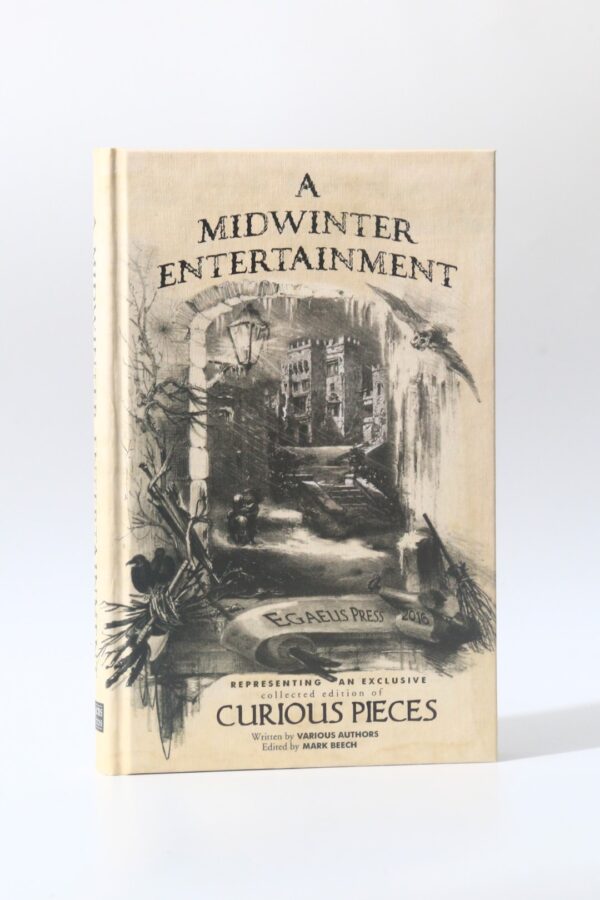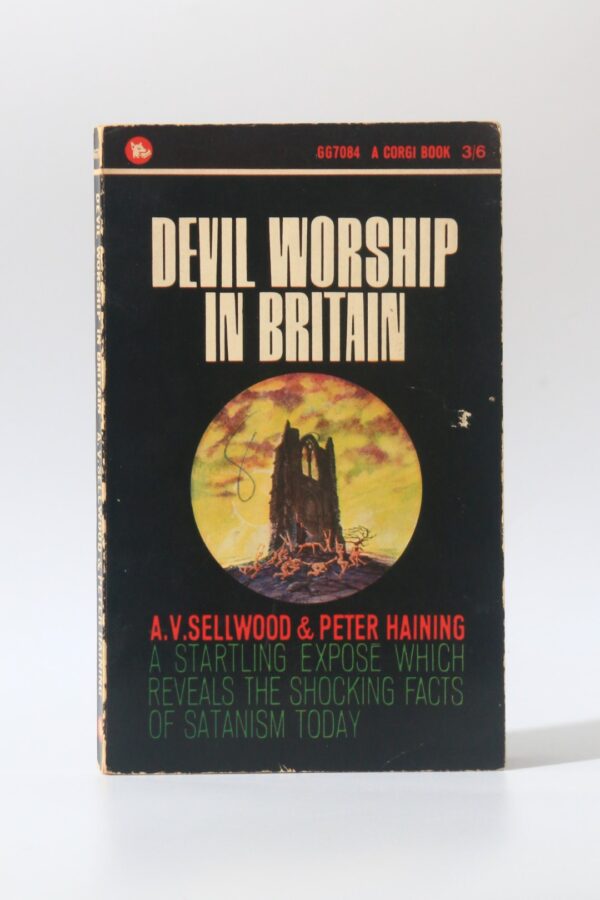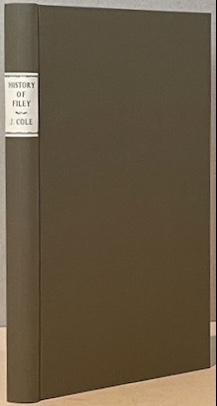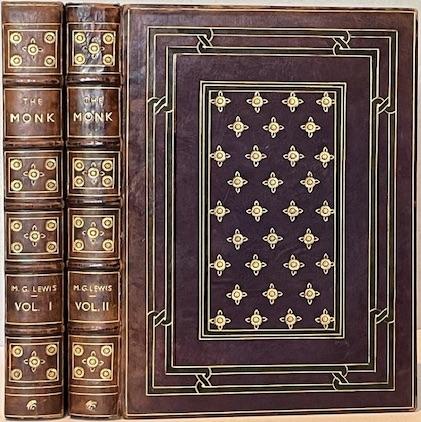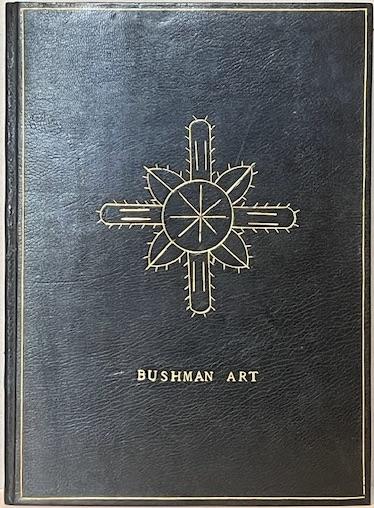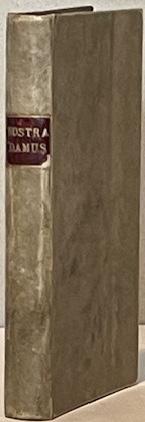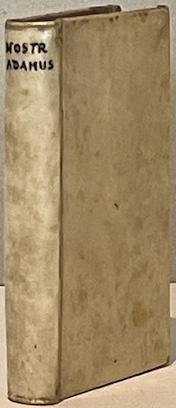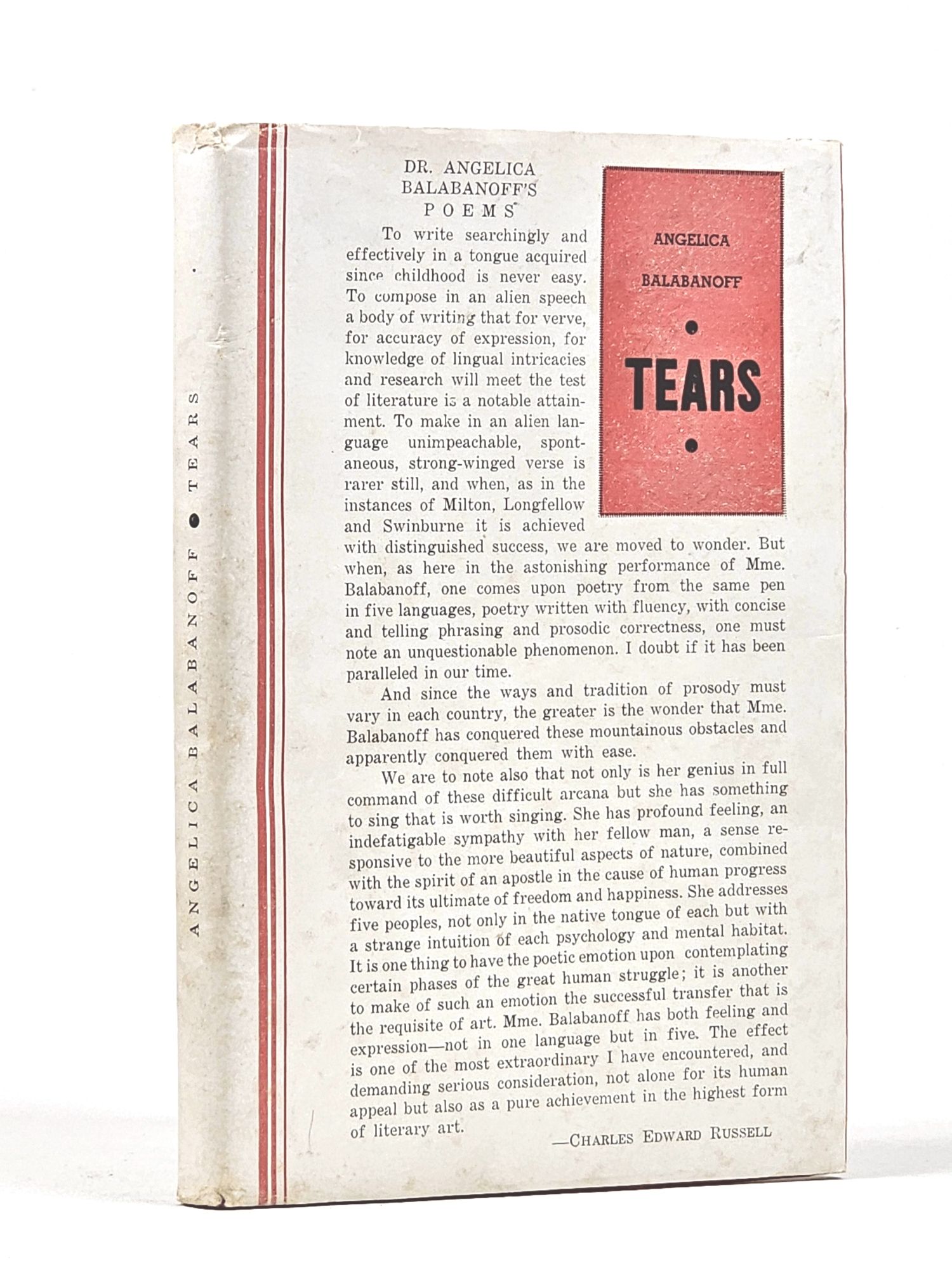
Tears (Signed)
Balabanoff, Angelica (1878-1965) Poems of political struggle, published while Balabanoff was in exile in New York during World War II. She was a Russian-born Italian Jew who had worked with Lenin, Trotsky, and Zinoviev, and with Socialist leaders in Italy before being forced into exile by the rise of Mussolini. Balabanoff has inscribed and signed this copy on a preliminary blank leaf: "For the comrades / O + R Fox / Thanking them for their / warm hospitality / and hoping to meet them / again and again! / W. D.C. 8-27-43 / [signature]." Introduction by Arturo Giovannitti. Dust jacket features lengthy blurbs by Charles Edward Russell and others. Bound in thin, flexible, red velvet-covered boards with upper board titled in gilt, which has darkened. Some shallow bumping to the Yapp edges of covers. Jacket has a few shallow edge wrinkles and light soil. Overall near fine in a near fine dust jacket. Thin velvet-covered boards. Octavo. 159 pages- $173
- $173

Decorated leaf from a Book of Hours Manuscript on vellum.
Bible. Psalms. Latin. One vellum leaf, 125 x 180 mm, with text within 80 x 95 mm guidelines. Text in manuscript recto and verso including eight capitals decorated in gold leaf and colors, and six spacers also decorated in blue, red, and gold leaf. Chapter incipit in red.- $350
- $350
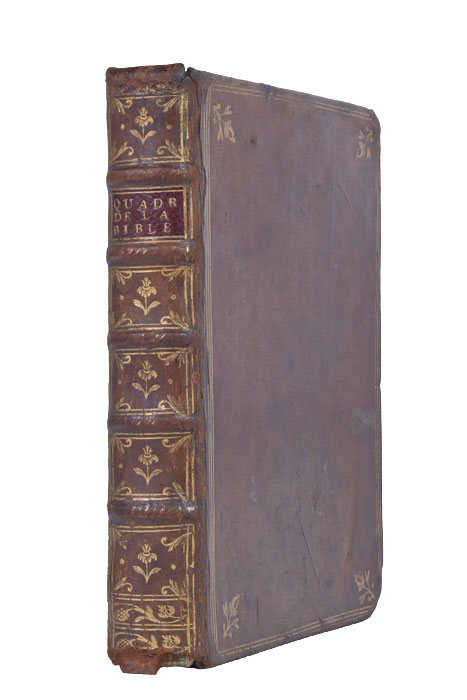
Quadrins Historiques de la Bible. Revuz, et augmentez d’un grand nombre de figures. A Lion, par Jan de Tournes, 1555. RELIÉ AVEC (à la suite): 2). [ FONTAINE (Charles) ]. Figures du Nouveau Testament. A Lion, par Jan de Tournes, 1556.
[ PARADIN (Claude) ]. 2 ouvrages en 1 volume petit in-8. 1). 120ff. 2). (1f.blanc). 52ff. Plein veau, dos à nerfs orné, triple filet doré autour des plats avec fleurons dorés dans les angles (reliure du 18e siècle, coins émoussés). 1). Deuxième édition, en grande partie originale, de ce "pur chef-d'uvre de l'école lyonnaise" (Brun) du livre illustré de la Renaissance, dont l'imprimeur Jean de Tournes et le peintre-dessinateur Bernard Salomon furent les plus célèbres protagonistes. Ornée d'un titre inscrit dans un bel encadrement d'arabesques gravées, et de deux cent trente-et-une gravures sur bois d'après les dessins de Bernard Salomon, cette édition contient trente-trois gravures de plus que la première de 1533. 2). Edition Originale illustrée de quatre-vingt-seize gravures sur bois d'après Bernard Salomon. L'exemplaire de la Morgan library présente, comme le nôtre, les "Quadrins Historiques" de 1555 et les "Figures du Nouveau Testament" de 1556 reliés ensemble. Exemplaire assez joliment relié en veau blond au 18e siècle. Il est court de marges: le couteau du relieur a rogné quelques millimètres des ornements des deux pages de titre ainsi que quelques bandeaux décoratifs et une demi-ligne de texte, en haut de deux pages. Très bon exemplaire par ailleurs. 1). Cartier, Bibliographie des éditions des de Tournes, 292. Brun, Le livre illustré de la Renaissance, 132.- $8,433
- $8,433

Harper s Weekly
Five bound volumes of the complete issues for the years 1861-1865. Contents in excellent condition. The bindings show some light to moderate wear to the exterior boards but remain sturdy and tight. Harper's Weekly was the most widely read journal in the United States throughout the period of the Civil War. So as not to upset its wide readership in The South, Harper's took a moderate editorial position on the issue of slavery prior to the outbreak of the war. The Weekly had supported the candidacy of Stephen A. Douglas in the 1860 presidential campaign against Abraham Lincoln, but as the American Civil War broke out, it fully supported Lincoln and the Union. A July 1863 article on the escaped slave Gordon included a photograph of his back, severely scarred from whippings; this provided many readers in the North their first visual evidence of the brutality of slavery. The photograph inspired many free blacks in the North to enlist. Some of the most important articles and illustrations of the time were Harper's reporting on the war. Besides renderings by Homer and Nast, the magazine also published illustrations by Theodore R. Davis, Henry Mosley, and the brothers Alfred and William Ward. Sold as a set - $12,500- $12,500
- $12,500
![Ezhednevnyia zapiski v Londone [A Daily London Notebook]](https://rarebookinsider.com/wp-content/uploads/2024/07/31936673019-600x866.jpg)
Ezhednevnyia zapiski v Londone [A Daily London Notebook]
SVININ, Pavel Petrovich The first Russian book on the UK and its capital, and the start of Russian anglomania --- First edition of these rich and entertaining notes, including great comments on Londoners (vs Parisians especially!). Rare: Apparently only one copy in the UK (British Library). WorldCat locates 5 other copies:NYPL (incomplete), Columbia, Cornell, Berkeley, and Library of Congress but the latter is in fact a photocopy 'made by the British Museum from another issue of the same year'. Interestingly, the title-page in the British Library copy is a completely different (later?) setting, with a quotation from Rousseau rather than Chateaubriand. We could also locate three holdings in Russian libraries, and only two copies at Western auctions in recent decades. Artist, collector, writer, an acquaintance of Pushkin and Gogol and the founder and editor of the famous journal Otechestvennye zapiski [Fatherland Notes], Svinin (17871839) published the present account of London life in the wake of his earlier Sketches of Moscow and St Petersburg (Philadelphia,1813; his first book), and Opyt zhivopisnago puteshestviia po Severnoi Amerike ('A picturesque voyage across North America: an essay', St Petersburg, 1815). A member of the first Russian diplomatic mission to the US (1811-13), Svinin is considered "one of the best known and most influential observers of life in the United States" (Bolkhovitinov, our translation here and below) for his work about America. In the summer of 1813, Svinin served at the headquarters of the Russian army in Germany and was repeatedly sent to London with dispatches. One of his tasks was to deliver a pension from tsar Aleksandr I to the widow of General Moreau, Napoleon's main rival, whom Svinin met in America. Svinin's observations of London during this trip begin, as a sort of introduction with separate pagination, with amusing comparisons between London and Paris. He then focuses on various elements of the city (such as post offices and roads), with chapters on the Congreve rockets at Woolwich, Greenwich Hospital, the astronomer William Herschel, the British Museum (and its Library: 'the best in Europe'), London's theatres, Newgate Prison, Kew and Windsor. The final chapter offers an account of Aleksandr I's visit in 1814. Among a great variety of subject matters, Svinin pays also attention to the "strangeness of English morality": "I observe also that the very laws of England and the charitable institutions give some excuse for the debauchery of the girls. Nothing can be stranger and more unjust than the law on this subject, which is very strictly enforced in England and America! A girl's oath is preferable to all man's oaths and is more respected, therefore, if a girl swears on the Gospel that so-and-so caused her pregnancy, regardless of all denials and arguments, he must either marry her or provide a known sum for raising the child". He also discusses theft issues on the streets: "The beggars in London constitute a class of artisans unknown anywhere else, for sanctimony here is not a sign of poverty, but a kind of industry [.] The swindlers have their own Academy in this quarter, where young candidates are trained - to unload other people's pockets, according to some systematic rules". This is the first extensive Russian work about London, and the UK in general, and the first Russian book focusing exclusively on the subject. The only works published before Svinin's observations were parts of larger travel accounts, and were few. The first may well be Nikita Demidov's Zhurnal puteshestviia. [Diary of a Travel.] in 1786 with only about 25 pp. on London and parts of the UK; then came Nikolai Karamzin's Pisma russkogo puteshestvennika [Letters of a Russian Traveller] (Moskovskii zhurnal [Moscow Journal], 1791-92), which included notes about England. His "Puteshestvie v London" ["Trip to London"] an additional fragment from The Letters was then published in his almanack Aglaia in 1794. And lastly Petr Makarov's article "Rossiianin v Londone, ili pisma k druziam moim" ["A Russian in London, or Letters to my Friends"] was included in Karamzin's Vestnik Evropy [Messenger of Europe] in 1804. Several fragments of Svinin's work were published in Syn Otechestva [Son of the Fatherland] magazine in 1815. This complete edition of 1817 was followed by multiple other travel accounts of England as the 1820s saw a new surge of anglomania among the nobility: "the aristocrats were fascinated by the English language and literature, borrowed the principles of the household, and most of all admired the polity of the distant island country" (Grigorieva). Provenance: Duke Vsevolod Dolgorukii (ownership inscription to lower pastedown; most likely Vsevolod Alekseevich Dolgorukii (also Dolgorukov, 1845-1912) - writer and publisher, author of a celebrated travel guide to Siberia (1895). Without substantial financial means, Dolgorukov was involved in various small scams individually and as part of The Jack of Hearts Club (that mainly consisted of Russian nobility). He was imprisoned several times and eventually was exiled to Tomsk. There he resumed his literary work and was an editor of a number of magazines and actively published in Tomsk, Moscow and St. Petersburg periodicals) Physical description:Duodecimo (16.6 × 10.6 cm) in half-sheets. Title, dedication leaf, t.o.c. leaf, V and 249 pp. Contemporary half roan over marbled boards, flat spine with gilt lettering and gilt fleurons in compartments. Condition:Binding a bit worn but solid, extremities rubbed, corners bumped, free endpapers sometime removed, scribbles to pastedowns and final blank page; old waterstain to lower portion of the text block, some marginal staining to lower corner of the first 60 pages or so, occasional finger-soiling in places. Bibliography:Sm.-Sok. I, p. 424 (added by the editor) but absent from his collection. Bolkhovitinov N. N., "Obraz Ameriki v Rossii" // Amerikanskaia tsivilizatsiia kak istoricheskii fenomen. Vospriiat- $6,295
- $6,295
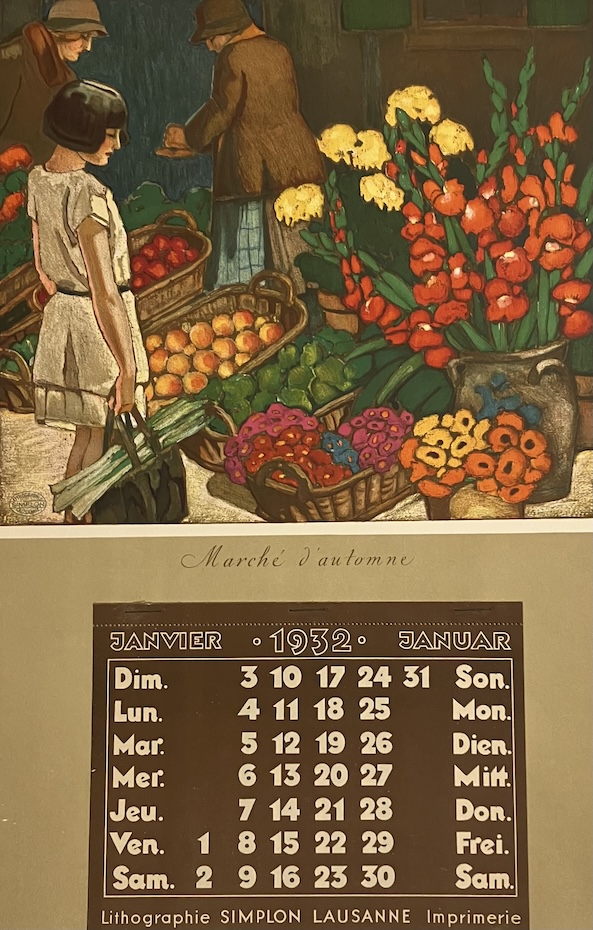
Marché d’automne *
[Calendrier] Anonyme : Carton 41 x 28, premier plat imprimé polychrome, bien complet des mois. Les maîtres imprimeurs Trüb venu d'Arau s'installer à Lausanne sous le nom de la lithographie du Simplon, avant que Roth & Sauter n'enfante le Verseau, faisant déjà des calendrier d'une belle tenue? > En cas de problème de commande, veuillez nous contacter par notre page d'accueil / If you have any problems with your order please contact us via our homepage- $128
- $128
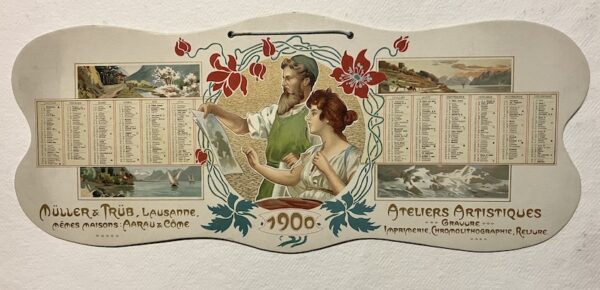
Sans titre *
[Calendrier] Anonyme : Carton 20 x 45, premier plat imprimé polychrome. Les maîtres imprimeurs Trüb venu d'Arau s'installeront à Lausanne sous le nom de la lithographie du Simplon, avant que Roth & Sauter n'enfante le Verseau, faisant déjà des calendrier d'une belle tenue? L'un des plus anciens, cette firme ayant été créée en 1890. > En cas de problème de commande, veuillez nous contacter par notre page d'accueil / If you have any problems with your order please contact us via our homepage- $128
- $128

Le Soleil Au Signe du Lyon d’ou quelques paralleles sont tirez, avec les tres-Chrestien, tres-Iuste, & tres-Victorieux Monarque Louys XIII. Roy de France & de Navarre, en son Entrée triomphante dans sa Ville de Lyon. Ensemble Un sommaire recit de tout ce qui s’est passé de remarquable en ladite Entrée de sa Majesté, & de la plus Illustre Princesse de la terre, Anne d’Austriche, Royne de France & de Navarre, dans ladite Ville de Lyon le 11. Decembre 1622
SPLENDID CEREMONIES. GRAND ENTRIES bound with Reception de tres-chrestien, tres-iuste, et tres-victorieux monarque Louys XIII. Roy de France & de Navarre, premier Comte & Chanoine de l'Eglise de Lyon: et De Tres-chrestienne, Tres-auguste, & Tres-vertueuse Royne Anne d'Austriche: Par Messieurs les Doyen, Chanoines, & Comtes de Lyon, en leur Cloistre & Eglise, le XI. Decembre, M. D. XXII. Lyon: Par Jaques Roussin, 1623 FIRST EDITION OF BOTH WORKS Folio in 4s: 29 x 20 cm. Soleil: Ï1(=A1?) *4 Î'4(-Î'1) B-R4 (R3 blank) S-X4 Y6 [$3 signed; -*2, *3, D1, G1, H2, K1, L1, M3, P1]. 94 leaves, pp. [10] (title printed in red-and black, blank, 4pp. dedication, 3pp. to the reader, imprimatur) 3-180. [=x, 178] With 12 engraved plates (11 integral with the text), of which 1 is folding (not integral). "Reception": A-G4 H6 [$3 signed; -A1, E2, E3]. 34 leaves, pp. 1-2 (title, blank) 3-67, blank. With 7 engraved plates (3 integral with the text), of which 4 are folding (not integral). Collated complete against the BnF copies. Bound in contemporary parchment (mild soiling and wear, a little rumpled.) On the spine, title in ink manuscript ("L'entrée/ De Louys/ XIII a/ Lione"). Text in fine condition with some very mild toning, occasional spotting, and a few minor stains. A few lvs. (C1/4 second work) lightly browned. A few clean tears repaired, no loss. Small marginal tears to a few lvs., far from the text. Bookplate of Paul and Marianne Gourary to the front paste-down. Ownership signature of "d. Rubto Galilei" to the front paste-down. Two works describing and illustrating the entry of Louis XIII (1601-1643, r. 1610) and his Queen consort Anne of Austria (1601-1666, m. 1615) into Lyon on 11 December 1622. Richly illustrated with engravings by Charles Audran, G. Autgers, Pierre Faber, Grégoire Huret, Philippe de Malley and David van Velchem. This royal tour marked the end of the first Huguenot rebellion, which was resolved by the Treaty of Montpellier, signed 18 October 1622. With scarcely six weeks to prepare, Lyon welcomed the triumphant king and queen - the titles' emphasis (very Christian, very just, very victorious) is telling - and celebrated their reign with pomp and spectacle. Louis XIII is here compared to the sun, a title more usually applied to his son Louis XIV, le roi soleil. The royal entry at Lyon was one of a number of celebratory stops made by the royal couple on the way from Montpellier (where the king had just signed the treaty.) Other regal celebrations were held in Arles (October 30, 1622), Aix (November 3 and 10, 1622), Marseille (November 7, 1622) and Avignon (November 16, 1622). These two related two works describe the entry, the monuments, ceremonies, and festivities. The "Sun in the sign of Lyon" describes the different monuments, composed of triumphal arches, columns, fountains, etc. erected for the occasion. It is illustrated with a vignette on the title with the arms of Lyon, drawn and engraved by Pierre Faber, and with 12 figures, including 11 full page and one folded out of text, by Faber, D. de Mallery, Grégoire Huret, Van Velkhem and G. Autguere; they represent the different monuments described in the work. One of the engravings shows the magnificent fireworks display over the river Saône. The present volume belonged to Ruberto Galilei (Roberto, born 1595), a Lyon-based cousin (fifth, once removed; nevertheless Favaro describes him as "sinceramente affezionato a Galileo") of the renowned scientist Galileo Galilei (1564-1642). Ruberto acted as an intermediary for Galileo's foreign correspondence - with Diodati, Peiresc, Mersenne et al. - after his inquisitorial trial in 1633. The cousins also corresponded, especially concerning the movement and publication of books. Ruberto moved from Florence to Lyon as a young man, and so possibly witnessed this joyeuse entrée. [1] An earlier issue of the Reception with a 1622 date (surely a nicety rather than a sign that the work was conceived and published in 20 days) is recorded, but is otherwise identical. [2] Fa- $15,000
- $15,000
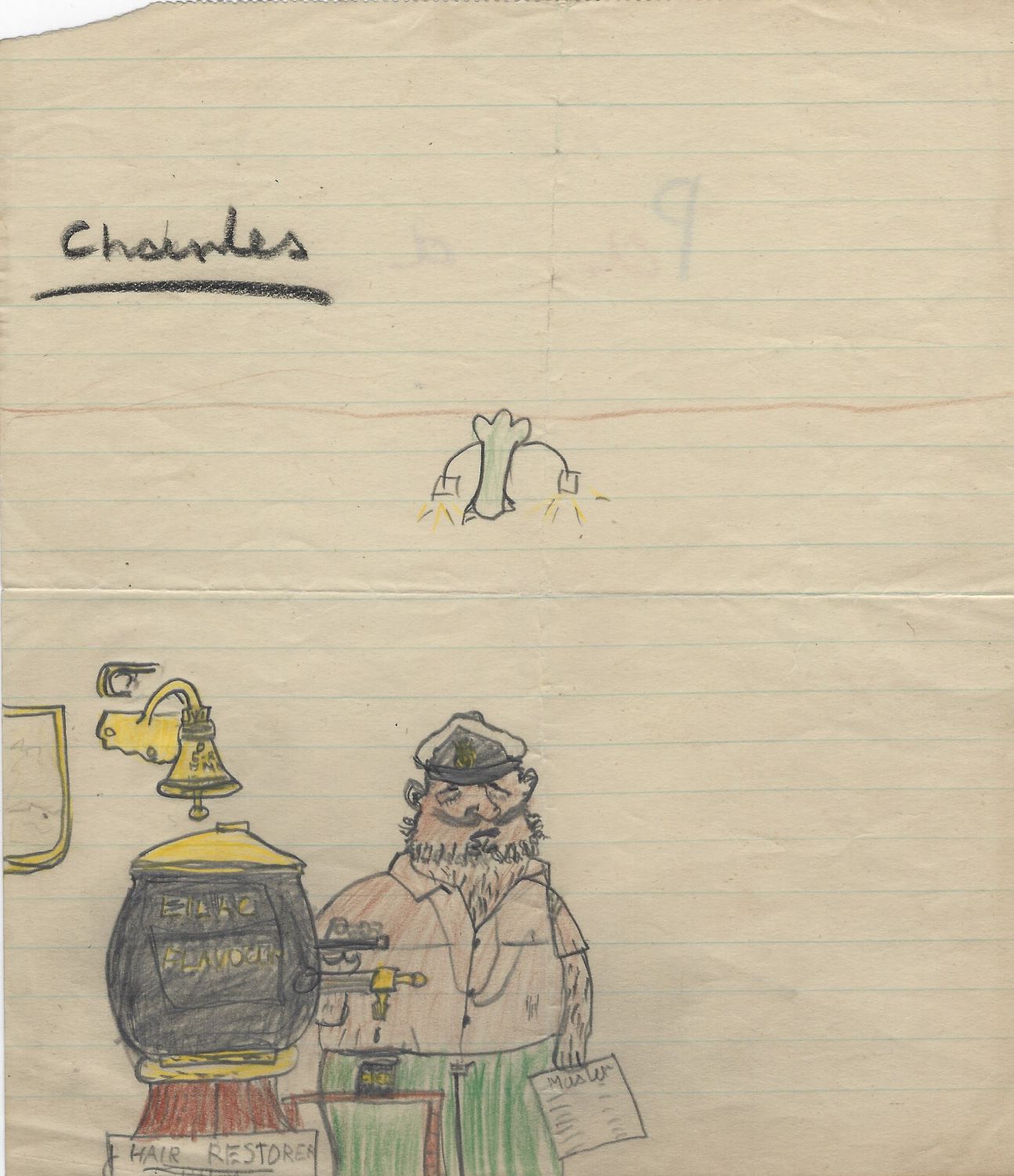
Extraordinary signed caricature of his father by the young Charles
King Charles III Charles III, King (1948 – ) A very interesting and amusing original drawing by King Charles III, accomplished as a child, circa 1957. The young prince has drawn a detailed image, using various colour pencils, of a bearded man wearing a captain's peaked cap, pulling a pint of bear and holding a piece of paper on which the word 'Master' is written. Beneath the tankard of beer is the label 'Hair Restorer'. Charles has signed his name boldly. at the top of the 7.5″ X 8.5″ sheet. To the reverse, he has written 'Papa' in different colour pencils, indicating that the drawing was more than likely gifted to his father. Prince Philip did indeed sport a beard in 1957, and travelled the world on HMY Brittania. A terrific son-to-father joke encapsulated on a page. A horizontal central fold, otherwise in very fine condition. An extraordinary item.- $11,293
- $11,293

A great Fleming letter – the author gets influence for a Bond plotline!
Ian Fleming Fleming, Ian (1908 – 1964) 'James Bond must emulate that exploit' A fine typed letter signed by Ian Fleming ('Yours ever, Ian'), Kemsley House letterhead, May 2nd 1957. Fleming writes to fellow author R. W. Thompson. In full: 'What an extraordinary kind thought to have written such a warm and splendid letter. I couldn't have been more pleased, although there is surely a touch of the old Thompson hyperbole in your praise. Anyway it was intoxicating stuff to find on my same old desk in W.C.l. on a dull Thursday morning. I do hope all goes well with you and that being a writer in your own time and not a hireling has proved the right choice. I am sure it was. Your wine is far too new for the aged fiascos of Fleet Street. I shall never forget that bed of roses story about you — in Belgium I think it was — at the end of the war. One day James Bond must emulate that exploit. Again a thousand thanks for the wonderful letter.' Fleming adds the salutation in his own hand: 'My dear Tommy'. In fine condition, with a short tear, and paper loss, to the upper right corner. A warm letter of reply from Fleming, who, true to his word, would revisit 'that bed of roses story' in From A View To A Kill, one of five short stories published in the 1960 book For Your Eyes Only. The referenced passages read as follows: '…there was a low mound, perhaps a tumulus, covered with brier roses…' (p. 34), '…inside the mound, deep down in the earth, was the most professional spy unit that had ever been devised…a shiver of excitement and anticipation, almost of fear ran down Bond's spine…' (p. 38), and 'Instead of the periscope, a rose-stalk aerial would rise up from the bush… deep down under the earth off would go the high-speed cipher' (p. 40). Fleming letters referencing his iconic James Bond character are especially scarce, with this particular example all the more desirable given its creative connection to a well-known 007 short story. Reginald William Thompson (1904-1977) was an Army officer, journalist, author and friend of Ian Fleming. He served in World War II and was promoted to Captain before being transferred to the Intelligence Corps for training. After demobilization, Thompson joined the Kemsley Newspaper Group, attending and reporting on the Nuremberg trials. He travelled extensively as a war correspondent for the Sunday Times. In 1951, Thompson settled in Suffolk to write full-time on military subjects.- $9,964
- $9,964
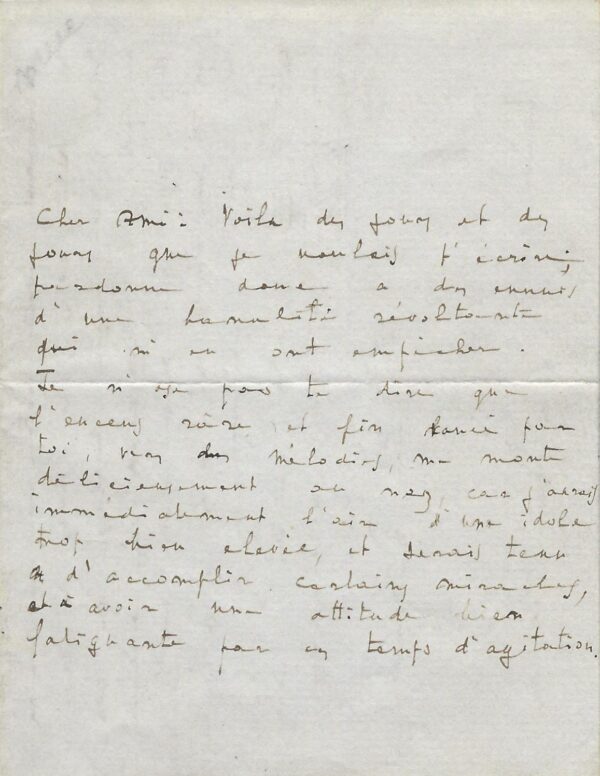
A fine, early content autograph letter signed by Debussy
Claude Debussy Debussy, Claude (1862 – 1918) 'I haven't the least intention of disconcerting my contemporaries with insomnious harmonies.' A fine three-page autograph letter signed by Claude Debussy ('Cl. Debussy'). Written on October 5th 1890 (according to postal stamp on accompanying envelope) in fountain pen ink on a single folded sheet of paper, and addressed to his friend, the composer Raymond Bonheur (1861 – 1939). Debussy opens with a flourish: 'I've wanted to write to you for days and days; some annoyances of revolting banality have prevented me from doing so. I don't dare tell you that the rare and fine incense launched by you over the melodies rises deliciously to my nostrils, for then I would immediately have to behave like an exalted idol and be obliged to accomplish miracles and assume a posture that is pretty tiring in an age of upheaval.' He goes on, 'Besides, I haven't the least intention of disconcerting my contemporaries with insomnious harmonies. I simply want the assent of people like yourself, who are disinterested in easy programmes and are truly willing to believe in music devoid of impure mixtures. Why look first at the label, and put oneself on the level of things that are sold in the bazaars? Let us make music that contains our whole lives and not merely small corners of it fit only for those who gape and engage in small talk and who never create it [he adds an asterisk, adding a comment below, '*And indeed for those who do create it!'] and that way we will not get in the way of literature or philosophy. With that, I shall expect you one of these days, and am yours very cordially and amicably, Cl. Debussy'. In very fine condition, and together with the original hand-addressed envelope. An interesting and early letter from the composer on the cusp of a new style (a style later known as 'impressionism'), written as it is during a period of flux and inspiration. An ardent follower of Wagner in the 1890s, Debussy had recently concluded that to imitate his style would not be the way forward; he famously described the German composer as 'a beautiful sunset that was mistaken for a dawn'. In 1889, he had first heard Gamelan music at the Paris Exposition, and his friendship with Satie began in 1890; in Satie, he found a kindred spirit. Debussy's subsequent output in the 1890s included celebrated works such as Pelleas et Mellisande, his String Quartet, Prélude à l'après-midi d'un faune and many important piano works; of particular note is his piano piece Rêverie, written in 1890, which employs impressionistic techniques accompanied by late romantic harmony, creating a dreamlike and ambiguous musical landscape — a style he would carry forward into some of his most important works of the period.- $4,982
- $4,982

A fine content signed letter by Mandela
Nelson Mandela Mandela, Nelson (1918 – 2013) 'A younger generation… guiding the country towards a secure and prosperous future' An excellent typed letter signed by Nelson Mandela ('N. Mandela'), on his personal letterhead, April 17th 2004. A lengthy letter to Dr. Ivan May. In full: 'There could have been no more appropriate way for South Africans to celebrate the first decade of democracy than going to the polls in this period. Nothing else symbolised the birth of our non-racial democracy so vividly as those wonderful election days in April 1994. The nation came together in the physical act of voting on those days; it is proper that we marked a decade in the life of democratic South Africa by once more coming out voting for our national and provincial legislatures.' 'We had many challenges and obstacles in our national life over this past decade and the problems ahead remain large and daunting. Too many people in our country are still suffering the hardships and deprivations of poverty. One of the root causes of that poverty is the absence of jobs; nothing can be more of an assault on a person's dignity than the inability to find work and gainful employment. Accompanying poverty are myriads of social ills — illiteracy, homelessness, exposure to preventable diseases, general penury and social vulnerability. And the threat of HIV/AIDS looms large in virtually all aspects of our national life.' 'What we can say, though, is that we now have the weapon and the protection of democracy to face and tackle those problems and challenges. The simplest, but therefore also most fundamental, gain of our democracy is that the people govern. There may be shortcomings in delivery; government departments and officials may in some cases be under-performing; certain interest groups may feel that they are not sufficiently catered for; there are certainly many areas of legitimate and valid complaint and dissatisfaction. All of this, however, is played out, contested, debated and accounted for within the secure framework of a multi-party pluralist democracy.' 'Because of our democracy—non-racial, non-sexist, accommodating of diversity—we have managed over this decade to cement the unity of our nation. Whatever differences we may have and tensions that may exist, our democratic constitutional order is not threatened. We are solidly one nation, united in our diversity, held together by our common commitment to the constitution. We have indeed put our racially divided past firmly behind us and face the future with the confidence of a united, non-racial, democratic country.' 'That future lies in the hands of people and it has been a particular source of satisfaction to observe, especially over these last five years, a younger generation of leaders guiding the country towards a secure and prosperous future. President Thabo Mbeki is a shining and inspiring example of this. His firm leadership and clear vision had manifested not only in the remarkable progress South Africa has made, but also in continental and international affairs. The steady regeneration of Africa and the regard with which South Africa is held internationally are in no small measure due to his work and efforts.' 'The growth, consolidation and sustained health of our democracy are the responsibilities not only of leaders, but also of each and every citizen. We may not take our liberty and our democracy for granted. Too many people in all walks of life and over many years and decades suffered and sacrificed for its achievement. The almost miraculous triumph of reason and compassion over prejudice and fear at the time of our peaceful transition is too precious.' 'Every political party and organisation has a responsibility to keep our democracy alive, our people united and our country progressing towards peace and prosperity. Every individual in every sector of society has the responsibility to remain a caring South African, never indifferent to the affairs and well-being of our c- $1,993
- $1,993

Something About Eve
James Branch Cabell New York, Robert M. McBride, 1929. First edition, first impression. Hardback. A very good copy. Fantastic illustrations by Pape. Some edge wear to the jacket, a few short tears and nicks. Some tanning to the spine, and a little rubbing. Some offsetting to the tissue guards from the illustrations. Illustrations by Frank C. Pape [11399, Hyraxia Books].- $133
- $133
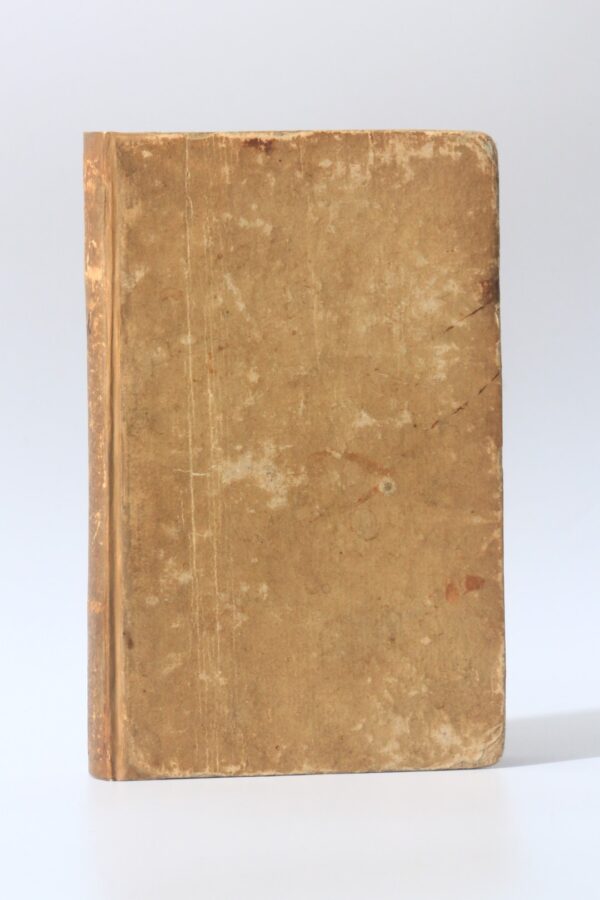
Nicolai Klimii iter subterraneum, novam telluris theoriam ac historiam quintae monarchiae adhuc nobis incognitae exhibens e bibliotheca B. Abelini.
Ludwig Holberg Copenhagen & Leipzig, Jacob Preuss, 1741. First edition, first impression. Hardback. A very good copy. An early classic of underworld science fiction by the father of modern Danish-Norwegian literature. This novel was a major inspiration for Verne, and the first work of fiction to use Halley's theory that planets comprise concentric spheres surrounding a small central sun. Set in the year 1665, the story is told by Niels Klim, who comes back to his native town Bergen after receiving his degree from the University of Copenhagen. While climbing a mountain with a group of friends, he falls into a pit to emerge - after fifteen minutes - in the hollow interior of the Earth. This space is a small cosmos with planets orbiting around a miniature sun. After floating for a while, he eventually lands on a planet named Nazar, in the kingdom of Potu (which echoes "utopia" spelled backwards), and discovers a species of intelligent anthropomorphic tree-men. Holberg's work "blends satire with a fantastic voyage and breathes the spirit of the eighteenth century. Other than its Latin language and passages of verse and prose adapted from classical authors, this novel is entirely modern in spirit. Its description of travel to exotic lands reminds one of his near-contemporary Jonathan Swift's Gulliver's Travels (1726), but with far more wit and humour. Rebacked with original spine laid down, engraved frontis and three smaller plates. Ownership inscriptions. Extremities and surfaces rubbed and worn, some light foxing and a couple of neat repairs to leaves. A nice copy. [11439, Hyraxia Books].- $2,331
- $2,331

TING PA 2
Maclise, Angus & Francis Brooks (eds.), Bill Barker, "Mongolian," Akis Vostanis, Karma Jimba Tzammo, Balakrishna Sama, Katie McDonald, Petra Vogt, T. V. Kapali Sastry, Ira Cohen & Karma Samde Drolma Folio (18 1/4 inches). [16] pp., including numerous woodblock illustrations (printed variously in black and red) plus 1 full-page woodblock print tipped in. In original pictorial wrappers, all on handmade rice paper. Small closed tears at head of front wrapper, light discoloration from original paste affixing large print, else fine. Numbered 102 of 150 copies. The second of three issues of TING PA, one of the early publications of the circle of American and European expatriate writers and artists living in Kathmandu during the 1970s. The woodblock illustrations include Himalayan and East Asian subjects, chiefly from religious traditions, as well as images drawn from the Rider-Waite Tarot.- $1,750
- $1,750
![DARK REFLECTIONS AND SOULDIERS [with:] DISCOVERY](https://rarebookinsider.com/wp-content/uploads/2024/07/31495271886-1.jpg)
DARK REFLECTIONS AND SOULDIERS [with:] DISCOVERY, REVOLUTION & UNDERSTANDING [and:] SECOND THE EMOTION
Fulani, Richard [3] volumes. 35; [4],31; 41,[1] pp. plus author's portrait and biography on recto of rear wrapper of third volume. Original stiff printed wrappers, stapled. Wrappers lightly worn and rubbed, else fine. The first three books of poetry by Richard Fulani, with covers printed, respectively, the pan-African colors of green, yellow, and red. The trilogy begins with Fulani's early poems, composed between 1968 and 1971, with the first part, DARK REFLECTIONS, considering on the breakthrough of new consciousness in the wake of the assassination of Dr. Martin Luther King, Jr., and the second part, SOULDIERS, being a tribute to contemporary African American leaders, "a few of the millions who have made it possible for us to be able to say such things as 'Black is Beautiful' and 'I'm Black and I'm Proud.'" DISCOVERY, REVOLUTION & UNDERSTANDING contains poems "dedicated to the 'endarkenment' needed to see through the blinding, white light," and SECOND THE EMOTION "is a book of feeling," dedicated to "[l]ove, in its broadest sense."- $120
- $120

THE NORTHERN MINES: Factual Narratives of the Counties of Nevada, Placer, Sierra, Yuba, and Portions of Plumas and Butte.
Kinyon, Edmund. Original green cloth with gilt title, octavo, [14], 1-167, [5] pp. illustrations from photographs, folding map at rear. Signed by the author on blank leaf facing title page. Author was a Grass Valley journalist and historian of the Gold Rush. Lght wear to covers but overall very good- $100
- $100
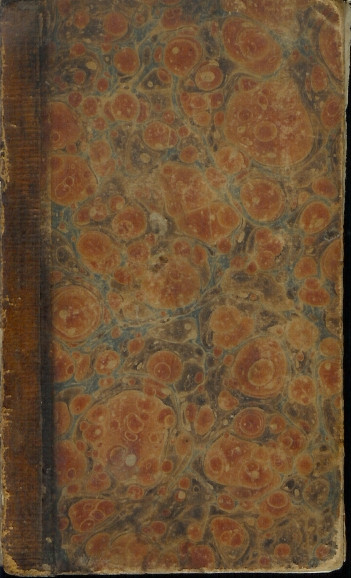
CONVERSATIONS ON THE SANDWICH ISLANDS MISSION. “By a Lady.” Revised by the Publishing Committee.
[Tuttle, Sarah]. 12mo, marbled boards, 216 pp., engraved frontispiece. Rare in commerce. OCLC/World Cat locates 12 copies. Forbes Hawaiian National Bibliography #822. A slightly shorter first edition was published in 1829. Complete but poor. Boards detached but present, spine perished, first gathering loose, first few pages detached, brown stain to last 25 pages (not obscuring text), scattered faint stains to text.- $150
- $150
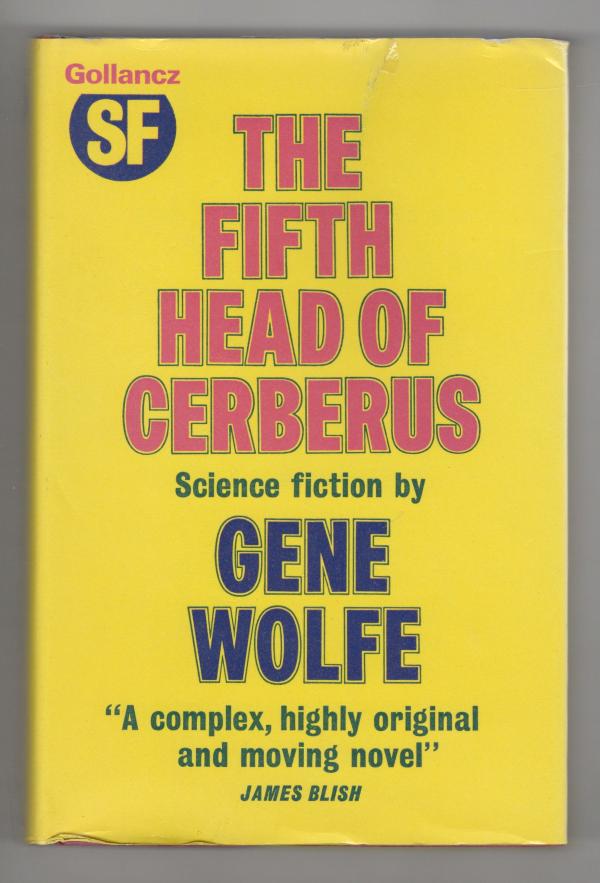
The Fifth Head of Cerberus by Gene Wolfe (First UK Edition) File Copy
Gene Wolfe The Fifth Head of Cerberus by Gene Wolfe (First UK Edition) File Copy A tight bright unread copy with bumped upper corner. "Archive Copy" stamp to title page. A bright dust jacket with a half-inch scrape to upper cover and rubbed corner tip. Not price-clipped. Not price-clipped. Publisher's File Copy. First UK Edition. Three novellas.- $100
- $100

The Fifth Head of Cerberus by Gene Wolfe (First UK Edition) File Copy
Gene Wolfe The Fifth Head of Cerberus by Gene Wolfe (First UK Edition) File Copy A tight bright unread copy with bumped upper corner. "Archive Copy" stamp to title page. A bright dust jacket with a half-inch scrape to upper cover and rubbed corner tip. Not price-clipped. Not price-clipped. Publisher's File Copy. First UK Edition. Three novellas.- $100
- $100
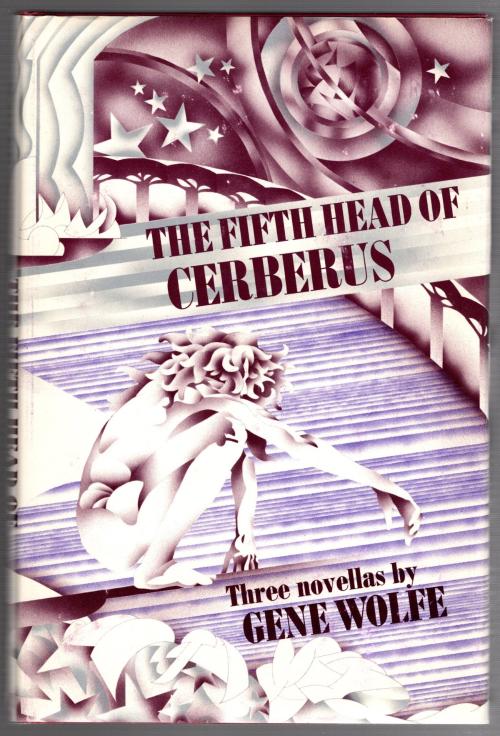
The Fifth Head of Cerberus by Gene Wolfe (First Edition)
Gene Wolfe The Fifth Head of Cerberus by Gene Wolfe (First Edition) A sharp tight copy. Bright gilt to spine. Pictorial dust jacket. Very minor edgewear. Not price-clipped. First Edition. No later printings listed. A collection of three novellas.- $100
- $100
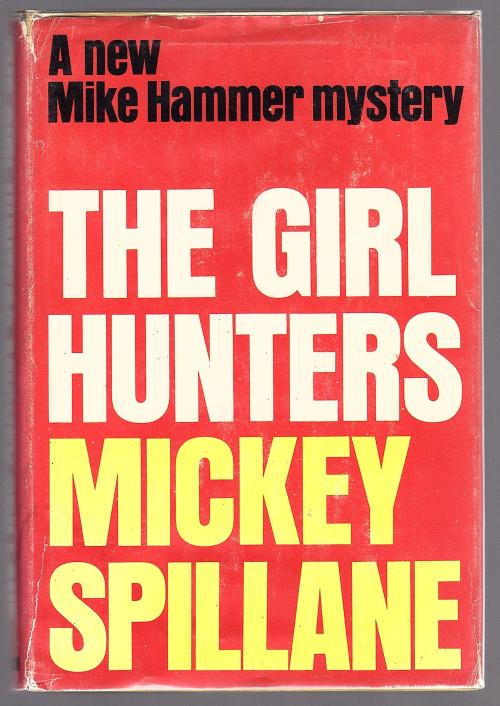
The Girl Hunters by Mickey Spillane (First Edition) Signed
Mickey Spillane The Girl Hunters by Mickey Spillane (First Edition) Signed Firm square copy. Minor wear to edges and spine ends with 2 inch tear to bottom front cover. Not price-clipped. In clear protective cover. Stated first edition. Mike Hammer mystery. Hardboiled mystery and action. Filmed from Spillane?s script and starring the author himself and Shirley Eaton. Signed by author on plate pasted onto half title page.- $150
- $150
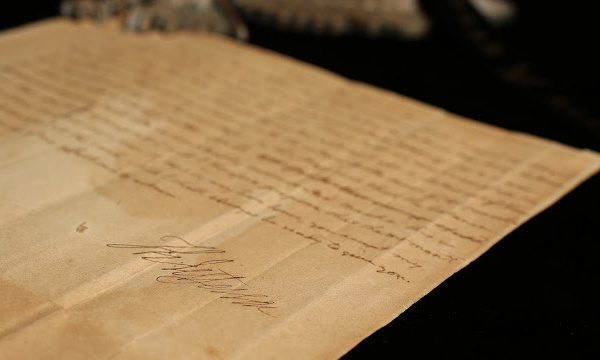
In an Unpublished Letter, President Thomas Jefferson Manages the Expense of his Presidential Household and his Estate in Monticello (He seeks to stretch his funds for months in an attempt to avoid borrowing against future earnings)
Thomas Jefferson Among the recipients were his servants, chef, coachman, and others, during a time when Meriwether Lewis was living with him?A remarkable letter showing the fragile nature of the former President's and founding father's personal financial state and how he juggled funds?This letter, unpublished and whose content was not known till now, was last sold in 1929 through the firm of Thomas Madigan in New York City. It was acquired by us from the heirs of that buyer.https://vimeo.com/973483379?share=copy?Thomas Jefferson lived with his debt throughout much of his life, inheriting debt from his father and living beyond his means with large projects and lavish lifestyle. Eventually this would lead to the sale of his property and land. And his Presidential salary did little to alleviate this. His personal household expenses were such that he was essentially paying bills paycheck to paycheck, a sharp contrast to how we imagine the personal finances of an American president today.John Barnes emigrated from England to America about 1760. He was a tea merchant and grocer in New York and Philadelphia, relocating to the latter city when the federal government moved there in 1791. Barnes remained in Philadelphia until 1800, when he moved to Washington to serve as a contractor with the Treasury Department. Jefferson had known him for many years and appointed him customs collector at Georgetown in 1806, a position Barnes held until his death. He was during much of this time also Jefferson's banker and commission agent, helped him manage the investments of Tadeusz Kosciuszko and William Short, and supplied him with groceries from 1795 until Jefferson's retirement. Barnes kept his personal house running during his time in Washington at the Presidential Mansion.In May 1802, Jefferson wrote a letter with dire news of his finances. "I received yesterday your favor of the 10th. and am sincerely concerned at the disappointment at the bank of Columbia [which evidently would not supply him with needed funds]. This proves farther the propriety of my curtailing expenses till I am within the rigorous limits of my own funds, which I will do. in the mean time I must leave to your judgment to marshall our funds for the most pressing demands, till I can be with you."In June, Jefferson wrote to Barnes explaining what the main outstanding bills would be that they might trim. These were the prime recurring bills of his household presidency during this time. "Th: Jefferson has been taking a view of his affairs, and sends mr Barnes a statement of them. if it should be possible to get through the month of July without the aid of the bank, by my giving a new note there on the 4th of August for 2000. Doll. we should on that day be almost completely relieved, and the receipt of the 4th. of October will take up the note, and leave me entirely out of debt. Perhaps we may not be able to squeeze down the houshold expenses to 600."LeMaire?s bills @ 75. D a week would be 337.Dougherty?s are per month about 70.groceries about 120.servant?s wages 152"Lemaire was his steward and helped with meal preparation. Doughtery was his coachman and servant. Among the other servants were former slaves, including James Hemings. There were white and free black servants, some remaining for long periods of time and living there or close; others would come and go and performed specific tasks.Money was also paid for ad hoc expenses and money sent home to Monticello and to his daughter. Jefferson evidently felt that the largest chunk and perhaps where he could trim expenses was his domestic situation.Interestingly during this time Meriwether Lewis was serving as Jefferson's secretary and living in the presidential mansion.He evidently provided that note in late Summer to the bank and hoped that it would last a while, a point on which Barnes evidently had some concern. Jefferson did his own tally and explained the situation to Barnes in this letter, explaining that he calculated it would last him through the winter.Autograph letter signed, Washington October 15, 1802, to John Barnes. ?In answer to my letter which had mentioned that I should be obliged to go again into the bank, you were so kind as to say, the balance then being between $1700 and $1800, that from this balance you could accommodate yourself for 2 or even 4 months rather than take it from the bank. I have taken an exact view of all the calls which will come to me through the winter and send you a statement of them and of the times they must be answered with the immediate sums of compensation to be received and applied to meet them. By this it appears that the balance due from me will always be under $1700 and will be completely surmounted March 4. This is longer than you had contemplated, and I therefore propose that the moment you find any inconvenience from it, now or any time hence, you accept my note to be discounted at the bank, which I shall always be ready to give you. Accept assurance of my affectionate esteem??The Papers of Thomas Jefferson notes that "A letter from TJ to Barnes dated 15 Oct. is recorded in SJL but has not been found."This letter, unpublished and whose content was not known till now, was last sold in 1929 through the firm of Thomas Madigan in New York City. It was acquired by us from the heirs of that buyer.- $40,000
- $40,000
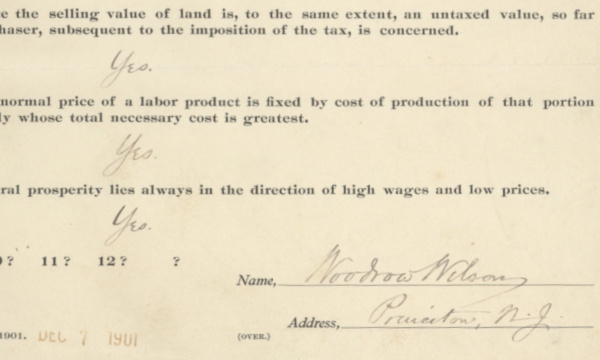
Woodrow Wilson Says ?General Prosperity Lies Always in the Direction of High Wages and Low Prices? (The Progressive Wilson also feels, ?Wages, while apparently drawn from capital and dependent upon capital, are primarily the product of labor; hence it is practically true that labor produces its own wages)
Woodrow Wilson Likely a unique document, as we?ve never seen another anything like thisThe turn of the 20th century was a time in which there was much interest in political economy, and those working in that field were often polled to determine whether a consensus on questions of interest could be had. For example, in 1908 the American Economic Association Quarterly, based in Princeton, N.J., polled political economists, trying to elicit from them a consensus upon certain definitions and statements of principle, touching land, value, and land taxation. The result was published in an article entitled ?Agreements in Political Economy? A similar poll, likely from the same source in Princeton, was taken in 1901, with the political economists receiving a set of questions on which they might agree on a form headed ?Possible Agreements? One of the political economists included in the survey was Woodrow Wilson.In 1901 Woodrow Wilson was a professor at Princeton, holding that position from 1890-1902, after which he became President of Princeton University. He had written a number of books on politics and government, so was an obvious choice for inclusion in the poll. Among the positions taken by Wilson were that wages are primarily the product of labor; labor produces its own wages; the normal price of a labor product is fixed by cost of production of that portion of the supply whose total necessary cost is greatest; and general prosperity lies always in the direction of high wages and low prices.Document signed, headed ?Possible Agreements?, the questions relating to political economy drafted by the publisher, the responses written out by Wilson, Princeton, December 1901.1. ?Wages," while apparently drawn from capital and dependent upon capital, are primarily the product of labor; hence it is practically true that labor produces its own wages. Wilson says ?Yes.?2. ?Ground rent" is what land is worth for use. Wilson writes, ?Yes, though generally in practice less than the use is worth.?3. Public franchises" are exclusive free privileges granted to one or several persons incorporated, and from which the mass of citizens are excluded. These franchises usually pertain to land, including, as they do, (to use the language of the New York Legislative Ford Bill,) all & rights, authority or permission to construct, maintain or operate, in, under, above, upon or through, any streets, highways, or public places, any mains, pipes, tanks, conduits, or wires, with their appurtenances, Wilson responds, ?Yes, though I do not understand the use of the word ?free? by way of depiction in the first line.?4. A tax upon ground rent is a direct tax and cannot be shifted. Wilson says, ?Yes.?5. The selling value of land is, under present conditions in most of the American States, reduced by the capitalized tax that is laid upon it. Willson replies, ?Yes, so far as I understand the statement.?6. Hence the selling value of land is, to the same extent, an untaxed value, so far as any purchaser, subsequent to the imposition of the tax, is concerned. Wilson says, ?Yes.?7. The normal price of a labor product is fixed by cost of production of that portion of the supply whose total necessary cost is greatest. Wilson writes, ?Yes.?8. General prosperity lies always in the direction of high wages and low prices. Wilson answers with a strong ?Yes.?The document is signed ?Woodrow Wilson, Princeton, N.J.?A fascinating insight into Wilson?s opinions on matters of political economy, especially his belief that general prosperity lies in the direction of high wages and low prices. It is also likely unique, as we?ve never seen another document anything like this.- $2,500
- $2,500
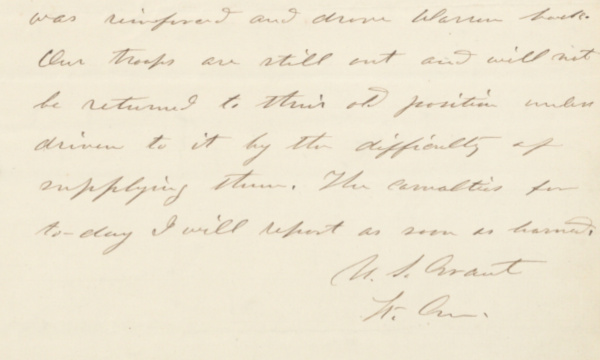
Lieut. Gen. Ulysses S. Grant?s Original Battle and Casualty Report for Action Around Petersburg, Addressed to Secretary of War Edwin M. Stanton (Amidst the Battle of Hatcher?s Run, during the latter stages of the Petersburg siege, he reports to Stanton, “The enemy attacked a port of the 2d Corps and were handsomely repulsed.?)
Ulysses S. Grant The Confederates, Grant updates Stanton, ?were leaving a part of their dead for us to bury, our losses were three officers & eighteen men killed, eleven Officers & ninety-two men wounded and twenty-two men missing.?Grant writes: ?In front of one Brigade of Mott?s Div. he buried thirty-one of the enemy and counted twenty two graves besides some of which were large enough for five or six bodies each. Gen. Smythe estimates the loss of the enemy in his front at two hundred. Our captures for the day were about one hundred men, half of them taken by the Cavalry and the rest by the 5th & 2d Corps. This afternoon the 5th Corps advanced and drove the enemy back on to this Artillery, probably into his entrenchments, beyond Dabney?s Mill. The casualties for to-day I will report as soon as learned.?Unique in our experience, this being the only battle and casualty report from Grant we have ever seen.By February 1865, the stalemate around Petersburg had entered its eighth month. Lieut. Gen. Ulysses S. Grant planned a Union offensive to deprive the Confederates of supplies, and also hasten the fall of Petersburg. The Union objective was to send Brig. Gen. David McM. Gregg's cavalry out to the Boydton Plank Road to destroy all the Confederate supply wagons they could find, while the V Corps and II Corps provided support and kept the Confederates occupied to the north and east. Pursuant to plan, Union forces began to stretch their battle lines to the west in an attempt to get Gen. Robert E. Lee's under-strength army to do the same.On February 5th, Union Brig. Gen. David Gregg?s cavalry division rode out to the Boydton Plank Road via Reams Station and Dinwiddie Court House in an attempt to intercept Confederate supply trains. Maj. Gen. Gouverneur K. Warren with the Fifth Corps crossed Hatcher?s Run and took up a blocking position on the Vaughan Road to prevent interference with Gregg?s operations. Two divisions of the Second Corps under Maj. Gen. Andrew A. Humphreys shifted west to near Armstrong?s Mill to cover Warren?s right flank. Late in the day, Confederate Maj. Gen. John B. Gordon attempted to turn Humphreys' right flank near the mill but was repulsed. During the night, the Federals were reinforced by two divisions.On February 6th, Gregg returned to Gravelly Run on the Vaughan Road from his unsuccessful raid and was attacked by elements of Brig. Gen. John Pegram?s Confederate division. Warren pushed forward a reconnaissance in the vicinity of Dabney?s Mill and was attacked by Pegram?s and Maj. Gen. William Mahone?s divisions. Pegram was killed in the action. Although the Union advance was stopped, the Federals extended their siege works to the Vaughan Road crossing of Hatcher?s Run. On February 7, Warren launched an offensive and drove back the Confederates, recapturing most of the Union lines around Dabney's Mill that had been lost the day before. Thus, the Confederates kept the Boydton Plank Road open, but suffered attrition and were forced to further extend their thinning lines.Autograph letter signed ?U. S. Grant, Lt. Gen.,? two pages, Head Quarters Armies of the United States letterhead, City Point, Virginia, February 6, 1865, amidst the battle, to Secretary of War Edwin M. Stanton, about the first day?s fighting and plans of the next day: ?In the affair of yesterday when the enemy attacked a port of the 2d Corps and were handsomely repulsed, leaving a part of their dead for us to bury, our losses were three officers & eighteen men killed, eleven Officers & ninety-two men wounded and twenty-two men missing. In front of one Brigade of Mott?s Div. he buried thirty-one of the enemy and counted twenty two graves besides some of which were large enough for five or six bodies each. Gen. Smythe estimates the loss of the enemy in his front at two hundred. Our captures for the day were about one hundred men, half of them taken by the Cavalry and the rest by the 5th & 2d Corps. This afternoon the 5th Corps advanced and drove the enemy [Grant strikes through ?inside this intrenchment?] back on to this Artillery, probably into this entrenchments, beyond Dabney?s Mill. Here the enemy was reinforced and drove Warren back. Our troops are still out and will not be returned to their old position unless driven to it by the difficulty of supplying them. The casualties for to-day I will report as soon as learned.?This is a true piece of history - the original report on the Battle of Hatcher?s Run, completely in the hand of Grant, as sent to Stanton. And considering the amount of time Lincoln spent at Stanton?s office, quite likely he would have seen or learned details of the report. It?s the only the battle and casualty report from Grant we have ever seen on the market.- $32,000
- $32,000
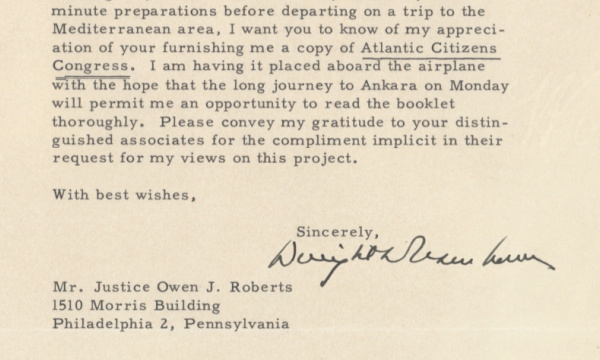
NATO Head Dwight D. Eisenhower Announces That He is Going to Turkey for the Official Reception of Turkey into NATO (He also expresses gratitude for information on a new offshoot of the Atlantic Union, designed to promote peace by federating member states)
Dwight D. Eisenhower Justice Owen J. Roberts resigned from the Supreme Court to advocate for a Federal Union of democracies, and to unite one group favoring world government and the other favoring Union of the DemocraciesFrom 1951-52, Eisenhower was the Allied Supreme Commander in Europe, which title included the post of head of NATO. In 1952, Turkey joined NATO, and Ike traveled to Ankara, Turkey, to seal with his presence the membership of Turkey in Europe.Justice Owen J. Roberts resigned from the Supreme Court in 1945, and was afterwards instrumental in forming the Atlantic Union, which would advocate for a Federal Union of Democracies, but with a gradual approach to final world union by way of regional unions. Two million people signed a petition that the U.S. and Great Britain unify, others wanted to start with the U.S. and Canada. Roberts said that although he approved of NATO, he thought it was a fine tradition but could not prevent war, and that permanent peace required a federation of likeminded peoples. Nor could the UN be relied upon, with the power the Soviets had in that body. In 1952, a new group was formed whose members agreed with Roberts? views, the Atlantic Citizens Congress, whose members were drawn partly from the Atlantic Union Committee, and partly from outside.Typed letter signed, on his letterhead, Supreme Headquarters Allied Powers Europe, 1 March 1952, to Justice Owen J. Roberts, saying he is departing for Turkey and that he is grateful for receiving information on the new Atlantic Citizens organization. ?Dear Mr. Justice: Although my schedule is extremely rushed by last minute preparations before departing on a trip to the Mediterranean area, I want you to know of my appreciation of your furnishing me a copy of Atlantic Citizens Congress. I am having it placed aboard the airplane with the hope that the long journey to Ankara on Monday will permit me an opportunity to read the booklet thoroughly. Please convey my gratitude to your distinguished associates for the compliment implicit in their request for my views on this project.?Eight months later, Eisenhower is elected President of the United States.- $3,000
- $3,000
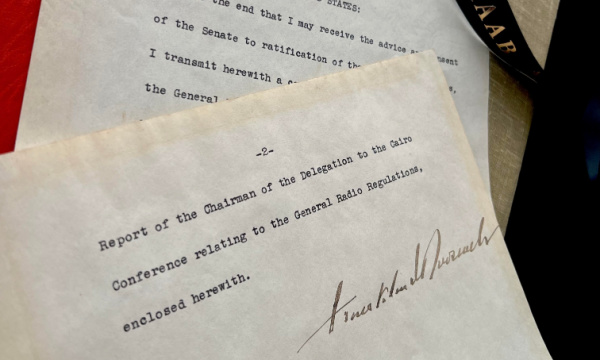
President Franklin D. Roosevelt, in Accordance with Article II of the U.S. Constitution, Formally Seeks the ?Advice and Consent? of the Senate to an International Treaty (The war-date agreement had to do with telegraph, radio, and telephone communication)
Franklin D. Roosevelt ?To the end that I may receive the advice and consent of the Senate to ratification of the revised regulations, I transmit herewith a certified copy of the revision of the General Radio Regulations annexed to the International Telecommunications Convention???A rare letter of any president to the U.S. Senate, and the first seeking the Constitutionally required ?Advice and Consent? that we have ever seenThe International Radiocommunication Conference was the first of the administrative radiocommunications conferences. It dealt with telegraph as well as telephone issues and was held simultaneously with the Administrative Telegraph and Telephone Conference in Cairo in 1938, under the banner of the International Telecommunication Conferences. The Telegraph Consultative Committee (CCIT) was reorganized and would function similarly to the Telephone Consultative Committee (CCIF). The CCIT would, from now on, be charged with the study of rate questions submitted to it by a plenipotentiary or administrative conference.The unification of code and plain language rates for telegrams within the European regime was adopted. The new fixed rate for coded telegrams was changed to 92% of the existing rate of plain language telegrams. The Telephone Regulations were modified to include the establishment of ?reversed-call charges? and ?urgent aircraft calls.? Urgent aircraft calls would be given priority over all other types of calls except urgent government calls.Participants agreed to use English as a supplementary language in conferences and meetings. The United States offered translating services for both of the conferences and compiled unofficial English translations. A vote determined that the Bureau would be responsible for future translations. A committee was created to resolve issues related to voting and to establish a recommendation for the next conference. A report was compiled and was approved for future voting at conferences.The increased demand and need for frequencies on intercontinental air routes was recognized. It was also decided that higher technical standards for transmitters through improved tolerance and band tables would be established. Limits were placed on the use of spark sets and maritime use was restricted to three frequencies. In addition, modifications were made to the regulations of the Maritime Mobile Service.The Radio Consultative Committee (CCIR) was reorganized. It would now be charged with the study of both technical and operations questions. Interval meetings would be held every three years.Changes were made to the Additional Radio Regulations with the establishment of a maximum charge of 20 centimes for radiotelegrams in the aeronautical service and the adoption of detailed regulations for new radio maritime letters.The Final Protocol to the General Radio Regulations was adopted and the agreement was ready to be ratified by the nations involved.A treaty is a binding agreement between nation-states that forms the basis for international law. Thus the agreement that resulted from this Conference was a form of treaty, and treaties signed by the United States must be ratified by the U.S. Senate to become law. Article II of the United States Constitution provides that the president "shall have Power, by and with the Advice and Consent of the Senate, to make Treaties, provided two-thirds of the Senators present concur.? President Roosevelt formally sought the Advice and Consent of the Senate to the Conference agreement.Typed letter signed, The White House, Washington, January 27, 1939, ?TO THE SENATE OF THE UNITED STATES? ?To the end that I may receive the advice and consent of the Senate to ratification of the revised regulations, I transmit herewith a certified copy of the revision of the General Radio Regulations annexed to the International Telecommunications Convention, signed at Madrid on December 9, 1932, adopted on April 8, 1938 by the International Telecommunication Conferences which convened at Cairo, Egypt, on February 1, 1938 to revise these regulations as well as the Additional Radio Regulations and the telephone and telegraph regulations also annexed to the Madrid Convention but which were not signed for the United States.Accompanying these revised general radio regulations is a certified copy of the Final Protocol to the General Radio Regulations, in which reservations thereto made by certain governments are recorded. The attention of the Senate is invited to the accompanying Report by the Secretary of State and to the Report of the Chairman of the Delegation to the Cairo Conference relating to the General Radio Regulations.?Letters of presidents to Congress are rarities.- $9,000
- $9,000

18th Century Letter Ladies Pocket Book, on red velvet, embroidered with silvered threads and sequin appliqués, red silk and leather lining, 10cm by 7cm
Ladies Pocket book Early 18th Century Pocket Book, on red velvet, embroidered with silvered threads and sequin appliqués, red silk and leather lining, 10cm by 7cm Lucy Locket lost her pocket, Kitty Fisher found it; Nothing in it, nothing in it, But the binding round it. Kitty Fisher" was the well-known British courtesan, Catherine Maria Fisher, who boasted assignations with many affluent 18th century gentlemen and was known for her flair for publicity. The "pocket" lost in the child's nursery rhyme refers to an 18th century purse. This fashion accessory came in several styles, one being the pocket case or letter case. They convey the dazzling opulence of affluent 18th century fashion and accessories. The elegantly worked carry-case was a smaller and more convenient adaptation of a ladies' pocket. These small pocket cases were used to hold bank notes , letters, pencils, and other small implements. They worn around a lady's waist and were accessed through slits in the skirt. Pockets were almost always decorated, this pocketbook is a particular grand example- $2,523
- $2,523
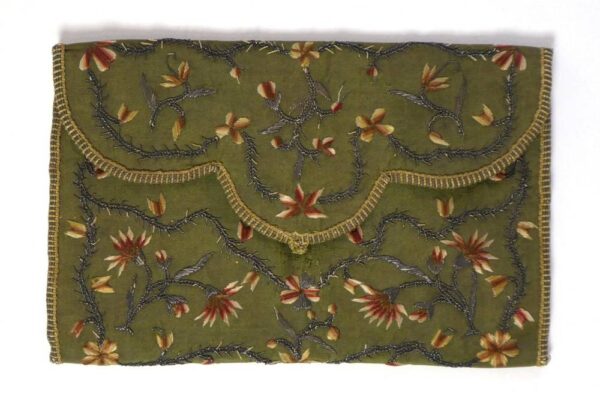
End of 18th/early 19th Century Green Silk Pocket Book, embroidered overall with pink and cream flower heads, on silvered stems, pale pink silk lining edged with silvered thread enclosing several pockets, 15cm by 10cm.
Jane Austen (time of) Green Silk Pocket Book, embroidered overall with pink and cream flower heads, on silvered stems, pale pink silk lining edged with silvered thread enclosing several pockets, 15cm by 10cm. Lucy Locket lost her pocket, Kitty Fisher found it; Nothing in it, nothing in it, But the binding round it. Kitty Fisher" was the well-known British courtesan, Catherine Maria Fisher, who boasted assignations with many affluent 18th century gentlemen and was known for her flair for publicity. The "pocket" lost in the child's nursery rhyme refers to an 18th century purse. This fashion accessory came in several styles, one being the pocket case or letter case. They convey the dazzling opulence of affluent 18th century fashion and accessories. The elegantly worked carry-case was a smaller and more convenient adaptation of a ladies' pocket. These small pocket cases were used to hold bank notes , letters, pencils, and other small implements. They worn around a lady's waist and were accessed through slits in the skirt. Pockets were almost always decorated, this pocketbook is a particular grand example- $2,242
- $2,242

Imaginary Gardens; A Study of Five American Poets
(Moore, Marianne) Sprague, Rosemary 8vo, 237pp; cloth. Com,prises chapters on Emily Dickinson, Amy Lowell, Sara Teasdale, Edna St. Vincent Millay, and Marianne Moore. This copy has been inscribed and signed by Moore in a shaky hand on the half-title page. Fine in a lightly marked dust jacket with a couple of short tears- $125
- $125
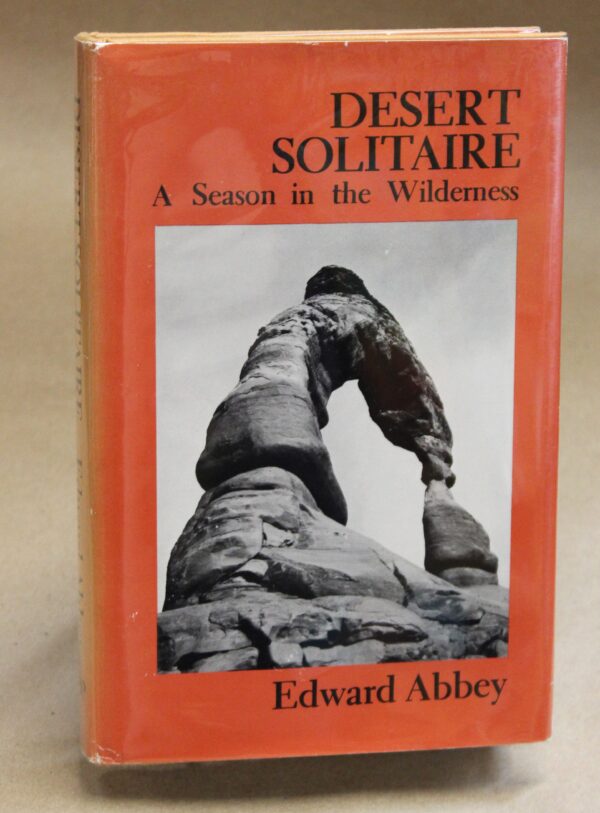
Desert Solitaire: a Season in the Wilderness
Abbey, Edward First Peregrine Smith edition from 1981, originally published in 1968. Inscribed by Abbey on the front free endpaper, dated 1983 in Gallup, New Mexico. Light orange boards with black lettering on cover and spine. Slight rubbing to edges; minor wrinkling to back joint. Orange pictorial dust jacket with black lettering on cover and spine. Jacket is wrapped in mylar and is not price clipped. Spine is faded; minor chipping and wear to edges; a bit of scratching. Rear hinge is cracked but binding is still fairly tight. Interior is clean. This edition features drawings by Abbey as well as an additional four-page author's introduction. Also includes black-and-white photos by Gibbs Smith on a small section of plates and the endpapers. Edward Abbey (1927-1989) was an acclaimed writer and cantankerous environmentalist. This is one of his classic books, a collection of meditations on Utah's canyon country drawn from the two seasons that Abbey worked as a park ranger in what was then Arches National Monument. The book blends a profound love for wilderness and a bitter abhorrence for those who would desecrate it. Signed copies of this edition are uncommon. ; B&W Illustrations; 8vo 8" - 9" tall; 269 pp; Signed by Author- $1,150
- $1,150

Cyprus
Mercator, Gerardus Cyprus. "Cyprus". Orig. copperplate engraving from Mercator's Atlas Minor. Published by J. Hondius in Amsterdam, 1609. With ornamental title cartouche, another cartouche with the scale of map and 6 inset maps of Aegean Islands (Lemnos - 'Stalimini', Chios - 'Chius', Lesbos - 'Mitilene', Euboea - 'Negroponte', Kythira - 'Cerigo' and Rhodes - 'Rhodus'). 14:19 cm (5 1/2 x 7 1/2 inch.) on paper sized 17,5:21 cm. Koeman III, map 8130:351, ed. 351:21 (1609 Atlas Minor [Ger.]). - A miniature map of Cyprus and the Aegean Islands.- $375
- $375
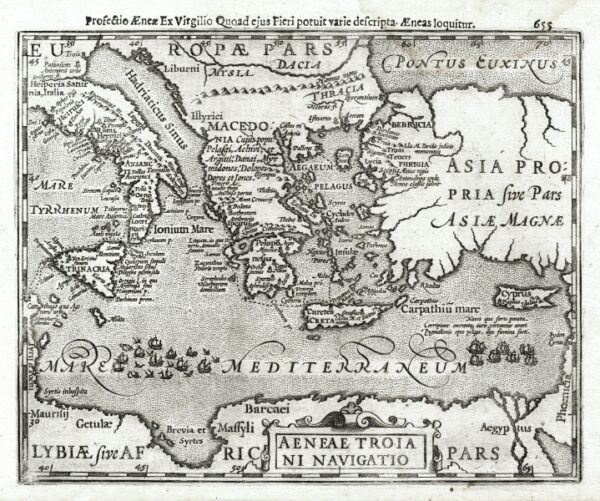
Aeneae Troiani Navigatio
Mercator, Gerardus Eastern Mediterranean. "Aeneae Troiani Navigatio". Orig. copperplate engraving from Mercator's Atlas Minor. Published by J. Hondius in Amsterdam, 1608. With ornamental title cartouche and title above the map ('Profectio Aenae Ex Virgillio Quoad eius Fieri potuit varie descripta. Aeneas loquitur'). 15:19 cm (6 x 7 1/2 inch) on paper sized 18:21,5 cm. Koeman III, map 0311H:351, ed. 351:11 (1608 Atlas Minor [Fr.]). - A miniature map map of Aeneas' travels in the Eastern Mediterranean - Italy, Sicily, Greece, Crete, Cyprus, Turkey.- $131
- $131
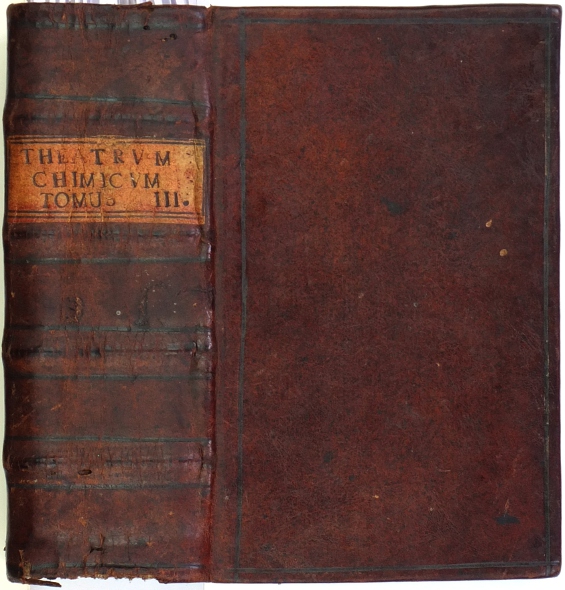
Deutsches Theatrum Chemicum
Roth-Scholtz, Friedrich Roth-Schlotz, Friedrich (Editor; 1687-1736). Chemie, Alchemie. "Deutsches Theatrum Chemicum, Auf welchem der berühmtesten Philosophen und Alchymisten Schriften, Die von dem Stein der Weisen, von Verwandelung der Schlechten Metallen in bessere, von Edelgesteinen, von Kräutern, von Thieren, von Gesund- und Sauer-Brunnen . Vorgestellet werden durch . Roth-Scholtzen". Nürnberg: Felsecker (Erben), 1732. 12mo. 960 S., 2 Kupferporträte (John Dee; 1527, London - 1608, Mortlake-Surrey - ein englischer Mathematiker, Astronom, Astrologe, Geograph und Mystiker vor der Seite 1 und Edward Kelley, auch Kelly; 1555, Worcester - 1597, Most, Tschechien - war ein englischer Alchemist und Spiritist vor der Seite 561), 3 Holzschnitt-Wappen. OLdr. aus der Zeit mit Titelschild auf der Rücken. Enthält alchemistische Schriften von Roger Bacon, Edward Kelley, Antonio de Abbatius und anderen, u.a. über den Stein der Weisen und die Goldherstellung, erschienen bei Felsecker, 1731: XXXI. Rogerii Baconis . Chymisch- und Philosophische Schrifften: Radix Mundi oder Wurtzel der Welt. Medulla Alchimiae, darinnen Vom Stein der Weisen, und von den vornehmsten Tincturen des Goldes, Vitriols und Antimonii, gahandelt wird. Tractat vom Golde. Tractat von der Tinctur und Oel des Vitriols. Tractat von . des Animonii. Send-Schreiben . von der Richtigkeit der falschen Magiae . XXXII. Gloria Mundi, Sonsten Paradeiß-Taffel. Alethopili Philosophische Betrachtung Von Verwandlung Der Metallen. Warnungs-Vorrede wider die Sophisten und Betrüger. Johannis Ticinensis . Johannis Ticinensis eines Böhmischen Priesters Chymische Schriften. Anthonii De Abbatia . ausgefertigtes Send-Schreiben von dem Stein der Weisen. . Anthonii De Abbatia Epistolae Duae, Scrutatoribus Artis Chymicae Mandatae. Edouardi Kellaei . Buch von dem Stein der Weisen. Edouardi Kellaei . Via Humida. Aula Lucis, Oder: das Hauß des Lichts durch S. N. ***. - Einband mit kl. Wurmlöchlein, sonst sauber und sehr gut erhalten.- $1,406
- $1,406
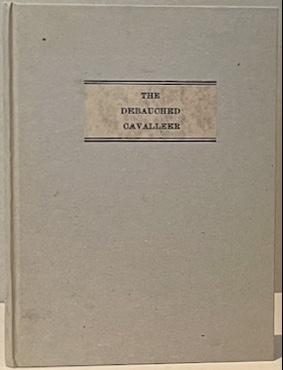
THE DEBAUCHED CAVALLEER: Or the English Midianite. Wherein are compared by way of Parallel, the Carriage, or rather Miscarriage of the Cavalleeres, in the present Reigne of our King Charles, with the Midianites of old. Setting forth their Diabolicall, and Hyperdiabolicall Blaspemies, Execrations, Rebellions, Cruelties, Rapes, and Robberies.
(LAWRENCE, george and Christopher Love.) G.L. and C.L. pp. 8. Smal 4to. Modern boards with front board label, new endpapers. With the bookplate of Fox Pointe Collection. Library of Dr & Mrs H.R. Knohl. Wing 656.Wing lists copies in 5 libraries.- $1,103
- $1,103
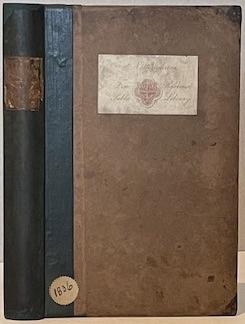
ARNALDO; GADDO; and other unackowledged poems, by Lord Byron, and some of his contemporaries; collected by Odoardo Volpi.
(SHANNON, Edward N). Bound with THE COMEDY OF DANTE ALIGHIERI: translated by Odoardo Volpi. pp. xiv, 296, xxxiv, 66, errata leaf. 8vo. Quarter cloth, original boards, spine relaid, new endpaper. With the bookplate of Nottingham Free Reference Public Library on the front board and a few stamps throughout. Chew p.178 and p.405. Chew devotes over 4 pages to this work and says' Arnaldo is the longest and most ambitious of all the pseudo-Byronic poems. BL- $2,206
- $2,206
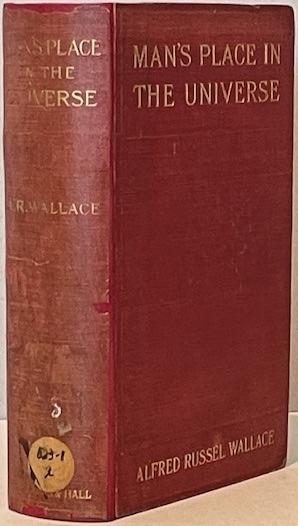
MAN’S PLACE IN THE UNIVERSE.
WALLACE, Alfred R. A Study of the Results of Scientific Research in relation to the Unity or Plurality of Worlds. pp. viii, 341, (i) of adverts. 1 plate folded. 8vo. Original cloth, spine relaid. New endpapers. Some foxing. 4th edition. Retains the original front free endpaper which is inscribed by Wallace " To his old Friend Arabella B. Buckley (Mrs Fisher) With the Author's very best wishes. January 20th 1905" This leaf is of very poor quality paper so very browned and frail. Arabella Burton Buckley's bookplate is retained on the inside of the front board. ODNB. Arabella Burton Buckley (1840 - 1929) was a writer and populariser of science. Her first book A Short History of Natural Science was published in 1876.- $1,765
- $1,765
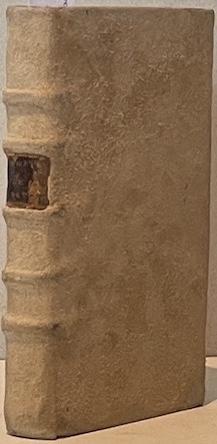
LES PROPHETIES DE M. MICHEL NOSTRADAMUS. Reueues et corrigees sur la copie Imprimee a Lyon par Benoist Rigaud en l’an 1568.
NOSTRADAMUS, Michel. 3 parts in 1. 64, 64, 64 leaves (A-H8, A-H8, A-H8). 8vo. Vignette on title page. Last 2 leaves of third part in facsimile. Reverse calf. COPAC University of Oxford Libraries.- $588
- $588
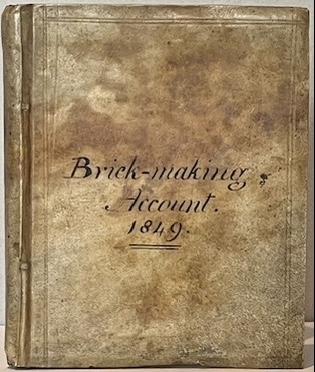
MANUSCRIPT BRICKYARD CAPITAL ACCOUNT.
(STRICKLAND, Henry Eustatius). pp. 10 leaves of accounts and 2 leaves of journal. The rest of the book is blank. 4to. Full vellum much browned. It would appear that Henry Eustatius Strickland, who built Apperley Court, had his own brick works as under Received (Season 1850) Dr H E Strickland June 17 From Self. Strickland built a chapel at Apperley which was comnpleted in1857. The journal at the back of the book chronicles, in brief, the creation of the brickworks.This branch of the Strickland family came from East Yorkshir. Henry's son Hugh was the renowned geologist Hugh Edwin Strickland, who was killed by a passenger train while avoiding a coal train.- $368
- $368
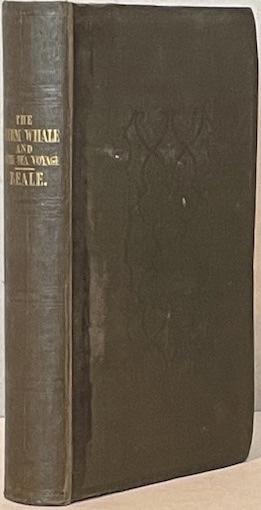
THE NATURAL HISTORY OF THE SPERM WHALE: . To which is added, a sketch of a South-Sea Whaling Voyage.
BEALE, Thomas, Surgeon. pp. 12, (ii) of subscribers, 393, (iv) of adverts dated 1838. Frontis, 2 plates. 8vo in 12s. Original cloth, spine relaid, recased slightly tightly, small section cut from half title. With the bookplate of Sir Edmund Giles Loder. 2nd edition- $1,471
- $1,471
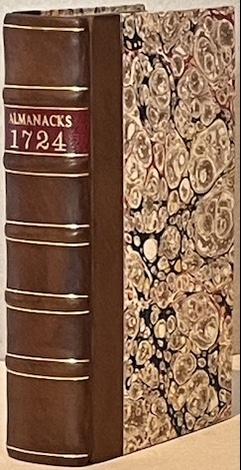
THE LADIES DIARY or, The Woman’s Almanack; GREAT NEWS FROM THE STARS: or, an Ephemeris; MERLINUS ANGLICUS JUNIOR: or The Starry Messenger; EPHMEPIS: or, A Diary Astronomical, Astrological, Meteorological; VOX STELLARUM: Being a Loyal Almanack; MERLINUS LIBERATUS: An Alamanack; PARKER’S EPHEMERIS The Thirty Fifth Impression; THE COELESTIAL DIARY: or an Ephemeris Sixth Impression; POOR ROBIN An Almanack after the Old and New Fashion;APOLLO ANGLICANUS: The English Apollo; PANTERPE; ID EST DELECTARE: or, an Almanack and an Ephemeris; GREAT BRITAIN’S DIARY: or, The Union- Almanack; John Wing’s ALMANACK; THE BRITISH TELESCOPE: being an Ephemeris of the Coelestial Motions, with an Almanack.
ALMANACKS. 14 Almanacks all for 1724, all published in London. 8vo. Modern contemporary style quarter calf, marbled boards, new endpapers. Slightly tight binding.- $662
- $662

Harry Potter and the The Deathly Hallows
ROWLING, J.K. (born 1965), [COCKCROFT, Jason, illustrator] [Children's Fantasy] FIRST EDITION, first impression. Octavo (21 x 14cm), pp.607 [1]. Publisher's pictorial paper over boards, with the matching dust-jacket illustrated by Cockcroft, priced at £17.99. A near fine copy showing just a touch of light handling. The final Harry Potter adventure. Philip Errington; J.K. Rowling. A Bibliography (London, Bloomsbury, 2017), A14(a).- $127
- $127
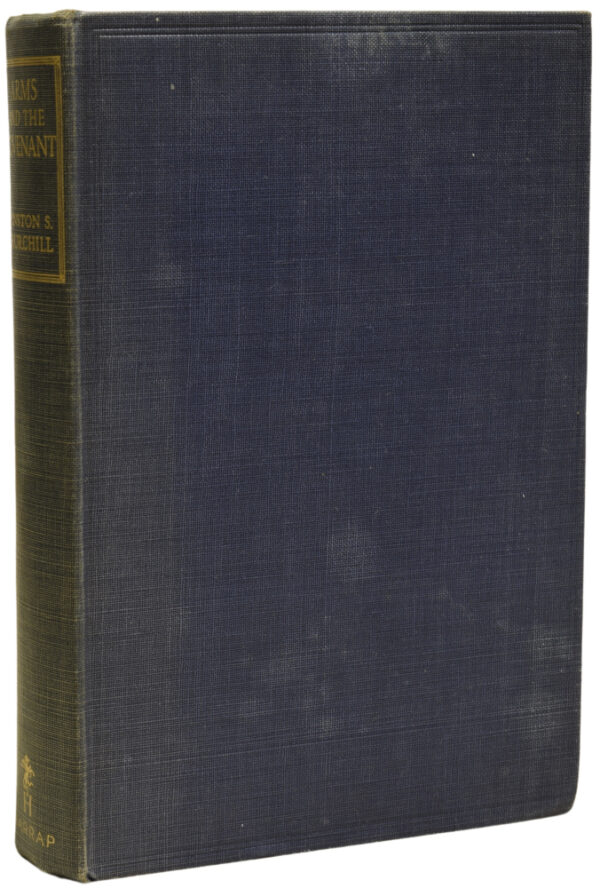
Arms and the Covenant. Speeches by the Right Hon. Winston S. Churchill, C.H, M.P., Compiled by Randolph S. Churchill
CHURCHILL, Winston S. (1874-1965) [Politics] FIRST EDITION, First Impression. Octavo (23 x 17cm), pp.466 [2]. With a frontispiece photograph of Winston Churchill. In publisher's blue cloth with gilt titles to spine. Top edge blue. One of just 5000 copies from the original print-run. Contents clean. First and final leaf of text block toned as usual, edges and covers lightly marked. Very good indeed. A volume of Churchill's speeches on National Defence and Foreign Affairs. The US version, entitled 'While England Slept' was published later in September 1938. Langworth p.192.- $394
- $394
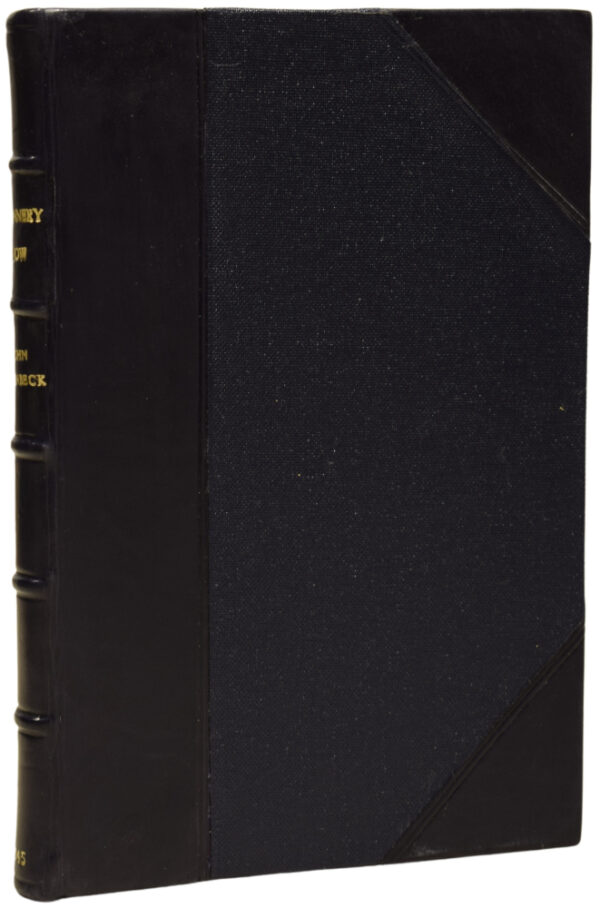
Cannery Row
STEINBECK, John (1902-1968) [American literature] LEATHER-BOUND FIRST UK EDITION, first impression. Octavo (20 x 14cm), pp.136. Elegantly bound in navy blue half calf over the matching cloth boards, raised bands and gilt titles to spine. The pages show brightly bearing in mind they have been printed on war economy standard paper, some slight marking to the edges; externally fine. A clean copy in a handsome recent leather binding. The classic depression-era novella set in a run-down street of sardine canneries in Monterey, California, being a story of misfits, death and loneliness in the aftermath of World War II.- $234
- $234
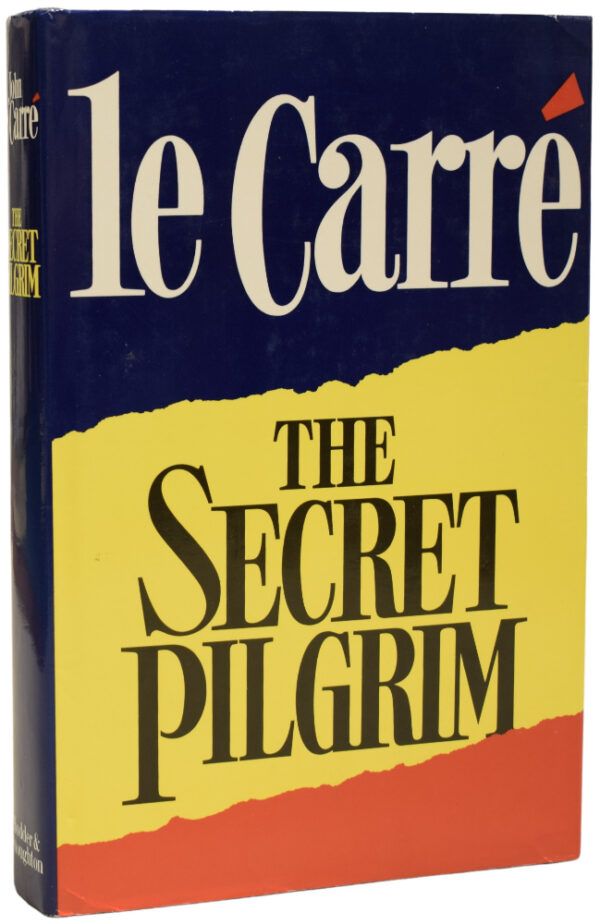
The Secret Pilgrim
LE CARRÉ, John [pseudonym of David John Moore CORNWELL] (1931-2020) [Spy thriller] SIGNED FIRST EDITION, first impression. Octavo (24 x 16cm), pp.[8] 335 [9]. SIGNED by the author in black ink to the title page. Publisher's purple cloth with gilt titles to spine and blue endpapers. With the blue, yellow and red dust-jacket, priced at £14.95. A crisp, fine copy. An espionage novel with George Smiley in a supporting role.- $194
- $194
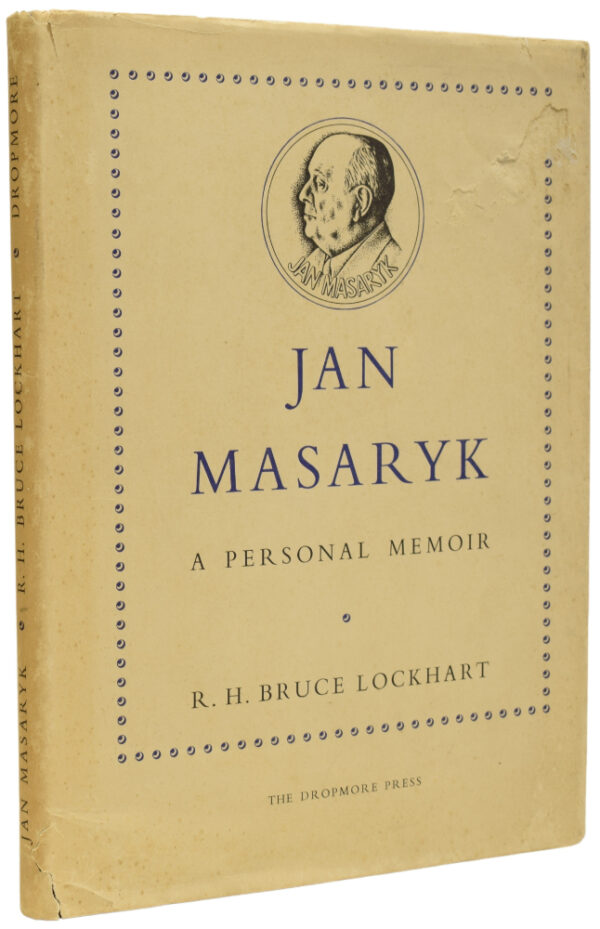
Jan Masaryk. A Personal Memoir
[Ian Fleming association] BRUCE LOCKHART, [Sir] R.H. [Military history /politics / espionage] LIMITED EDITION. One of five hundred copies. Quarto (27 x 20cm), pp.viii;80; [4], printed on hand-made cream wove paper, title and colophon printed in two colours. With fine colour illustration of the Masaryk Memorial Medal, 1948. Original full blue buckram, gilt, t.e.g., illustrated dust-wrapper priced £1, 10s, 0d. A stylish and expensive book for the time. Contents clean. A fine copy in near fine wrapper with small scuff to front panel. An elegant production from the publishing house run by Ian Fleming (renamed Queen Anne Press shortly after this release). Later owned by Fleming's bibliographer Jon Gilbert (also published by QAP). A record of their wartime friendship. Bruce Lockhart was a British diplomat, journalist, author, and secret agent. He was posted to Moscow with agent Sidney Reilly ('Ace of Spies'). His 1932 book Memoirs of a British Agent became an international best-seller, chronicling his experiences in Russia in 1918 following the Bolshevik Revolution. Masaryk was the Foreign Minister of the Czechoslovakian Government-in-exile who made regular BBC broadcasts from London to occupied Czechoslovakia. Masaryk's wartime speeches made him a national hero. Following liberation of his country, he remained Foreign Minister during the volatile immediate post-war years, with Czech communism on the rise, and the country's dealing of arms to Israel during the 1948 Arab-Israeli War. In March 1948 Masaryk was found dead in his pyjamas, having fallen from his balcony. The Ministry of the Interior claimed it was suicide but it was widely assumed he was murdered at the behest of the nascent Communist government. A 1968 investigation could not exclude murder, and an inquest following dissolution of Czechoslovakia concluded that he had been executed. Gilbert, pp.638, 663.- $201
- $201
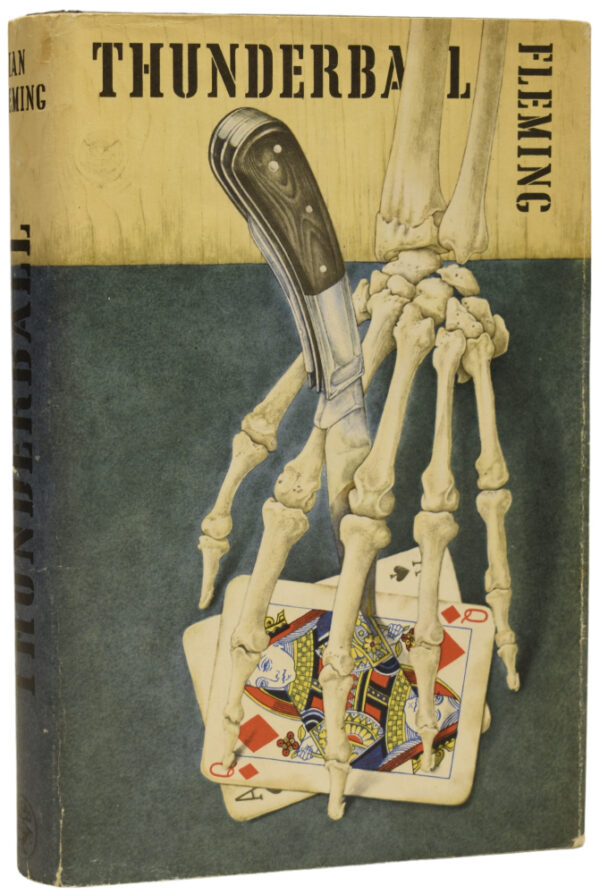
Thunderball
FLEMING, Ian Lancaster (1908-1964) [Spy thriller] FIRST EDITION, fifth impression, bibliographer's copy. Octavo (19 x 13cm), pp.254; [2], bank. Publisher's cloth-effect paper over boards with embossed skeleton hand design to upper board, gilt titles to spine, dust-wrapper illustrated by Richard Chopping priced at £4.95 via publisher's label. Ex-library copy with expected handling and wear, although quite presentable. Faint (partially erased) institutional stamp to copyright page else clean within, some splashing to foot of page edges, jacket with very little wear. Shows well. The majority of Cape's James Bond hardcover reprints were taken into the lending library system to replace existing well-worn stock. From the comprehensive James Bond collection assembled by Jon Gilbert (pencilled notes and signature within). His comprehensive guide to the works of Ian Fleming (2012) won the 16th Breslauer Prize for bibliography. Gilbert A9a (5).- $127
- $127
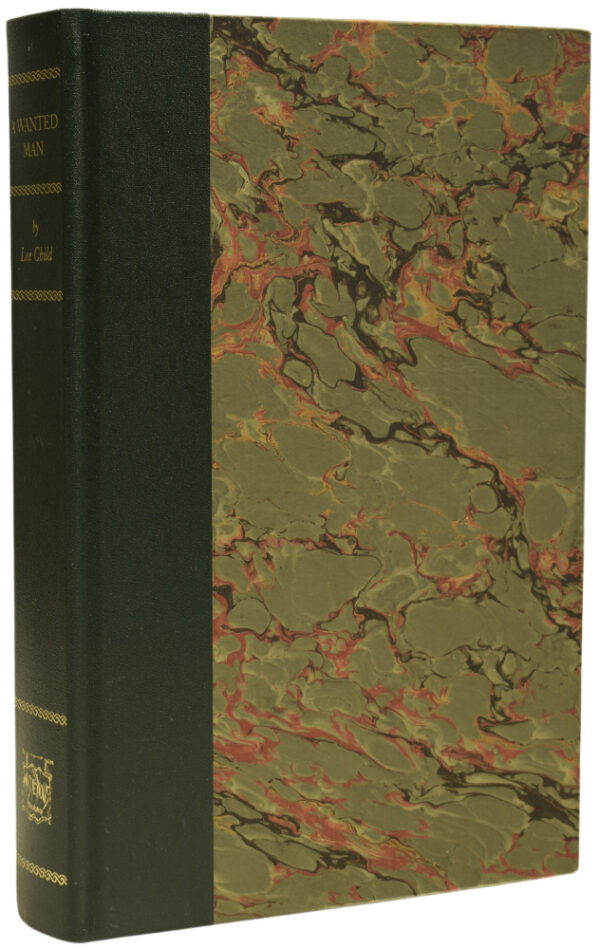
A Wanted Man. A Jack Reacher Novel
CHILD, Lee [pseudonym of GRANT, James Dover] (born 1954) [Thriller] SIGNED LIMITED EDITION. Octavo (24 x 16cm), pp.408. Number 25 of just 100 copies thus, SIGNED by the author in black ink to limitation page. Publisher's green quarter cloth, with gilt titles to spine and marbled paper over boards. Lilac endpapers. Smudge to fore-edge, either a production fault or transit mark. A fine, as-new copy. The seventeenth Jack Reacher novel. First published in 2012, this special edition contains a new introduction by the author. Lee Child has received multiple nominations for the prestigious Ian Fleming Steel Dagger, recognising best thriller of the year, and won the CWA's Diamond Dagger for a writer of outstanding body of crime fiction. Two blockbuster movies have been made from the Jack Reacher thrillers, plus the acclaimed Amazon Prime television series 'Reacher'.- $201
- $201

H.M.S. Cossack, 1958-1959.
FAR EAST STATION. Sole edition, signed by the ship's captain, David Seely, at the foot of his introduction. In 1959, Cossack completed a 15-year term of service in East Asia. This celebration of its last commission, during which it was stationed in Singapore, Hong Kong, and Japan, is unrecorded in institutions. Seely (1920-2011), the godson of Winston Churchill and of the future Edward VIII, fought in the Second World War and later in Malaya, commanding HMS Ajax between 1964 and 1965 and being mentioned in despatches. In 1966, he inherited the title Baron Mottistone and retired from naval service. Between 1992 and 1995, he was governor of the Isle of Wight. The text is split into a pictorial record of the commission and "not too factual departmental reports and sporting activities" (p. 4), enriched by humorous line drawings. Quarto. Original illustrated boards, red cloth backstrip, front cover lettered in black, endpapers renewed. Illustrations, maps, and advertisements throughout. Miniscule blue ink cross in main photo on p. 11. Boards stained and worn, one corner repaired, small losses at foot of first leaf and lower corner of p. 101, text unaffected: a very good copy.- $869
- $869
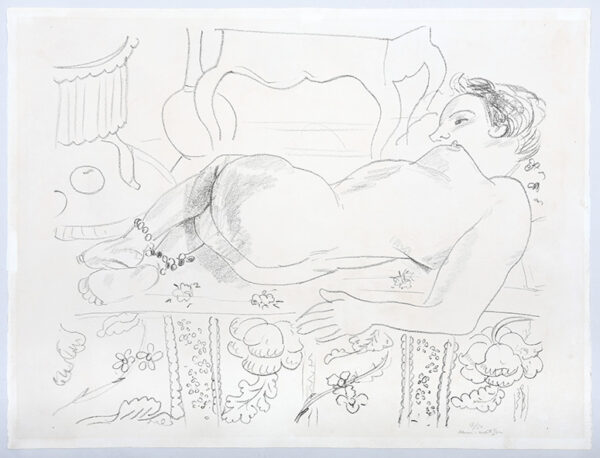
Nu couché sur sol fleuri.
MATISSE, Henri. Edition of 50. Signed and numbered in pencil lower right by the artist. Duthuit 503 Lithograph on Vélin d'Arches watermarked paper. Image size: 45 x 56 cm. Sheet size: 50.5 x 66 cm. Framed size: 86.6 x 101.1 cm. Paper lightly age toned otherwise in excellent condition. Presented in a decorative wooden frame with conservation acrylic glazing.- $33,429
- $33,429
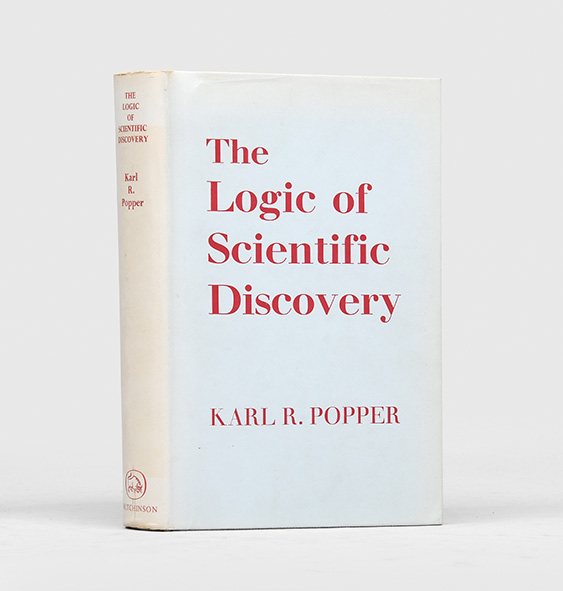
The Logic of Scientific Discovery.
POPPER, Karl R. First edition in English, first impression, of one of the most significant works in the philosophy of science. For the translation, Popper extensively rewrote the text, with new footnotes and 150 pages of new appendices. The work was first published in German in 1934; the English translation was published in the UK in January 1959, preceding the US edition in March. Octavo. Original grey cloth, spine lettered in gilt on red ground, light grey endpapers, top edge red. With dust jacket. Tables, diagrams, and manuscript facsimiles in the text. Unclipped jacket with hint of sunning to spine and a couple of tiny nicks: a fine copy in near-fine jacket.- $1,671
- $1,671
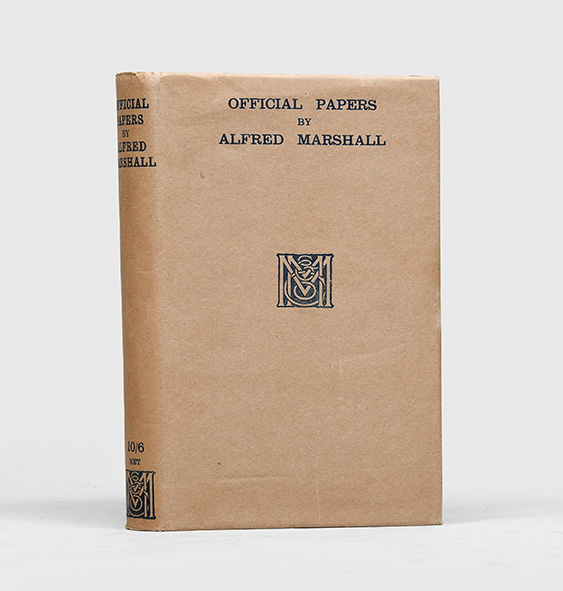
Official Papers.
MARSHALL, Alfred. First edition, first impression, of the author's collected contributions to public enquiries on economics, including a preface by its editor, John Maynard Keynes. Marshall prepared evidence for various enquiries covering poverty, currencies, tariffs, and international trade. Octavo. Original green cloth, spine lettered and ruled in gilt, covers ruled in blind. Tables in the text. Unclipped jacket with a hint of creasing, else: a fine copy in fine jacket.- $501
- $501

Sepher Masoreth
Edited by Joseph Ibn Rai. 8vo. Leather-backed red cloth. Printed by Giovanni di Gara, Venice 1607. First Edition. Text in Hebrew.The Masorah provides the number of times a particular word appears in the Bible. In his Bible commentary, the great Medieval Jewish scholar Jacob ben Asher sought to expound the significance of this phenomenon. This present work provides further studies utilizing this approach, thus reaffirming Jacob ben Asher's earlier efforts. According to many, Jacob moved to Spain with his father. It is also said that Jacob succeeded his father as the rabbi of the Jewish community of Toledo (Zacuto), while others say his brother Judah ben Asher did so. His brothers were also rabbis of different communities in Spain. He lived in abject poverty most of his life, and according to the Sephardic Community of Chios, is said to have fallen ill and died with his 10 companions on the island of Chios, in Greece, while travelling. Small repair to lower corner of title page, edges trimmed, one small closed marginal tear, generally clean internally.- $1,250
- $1,250
